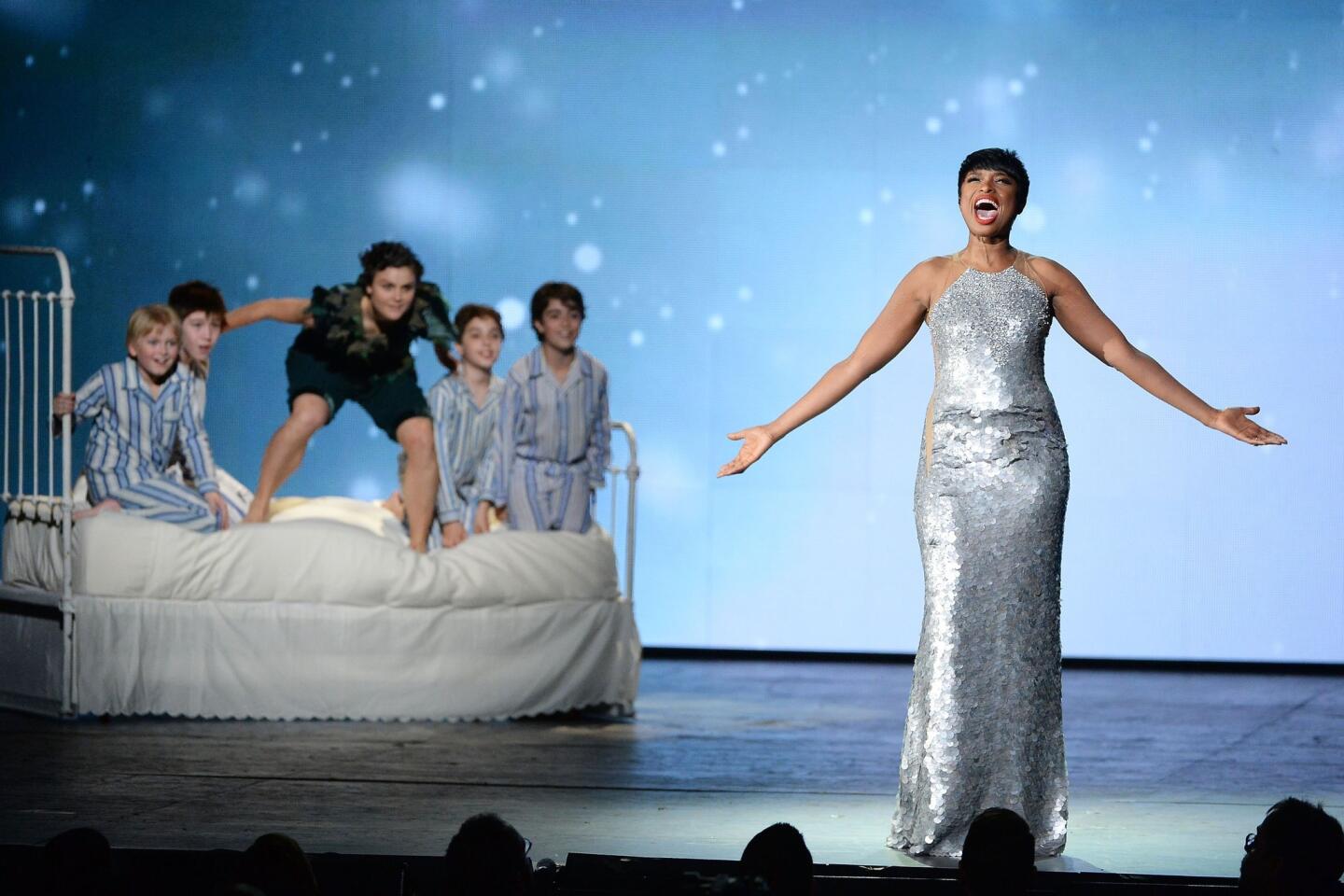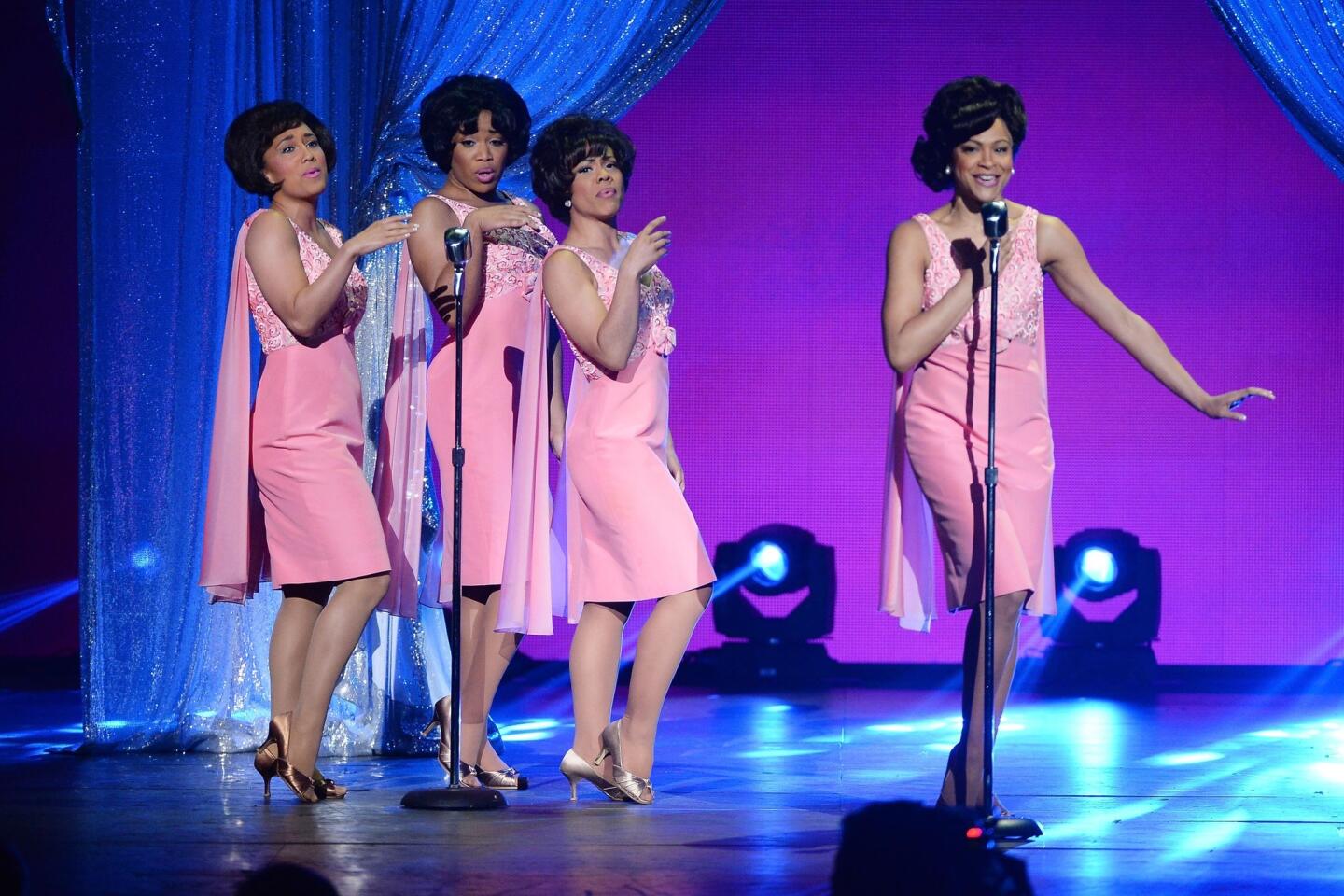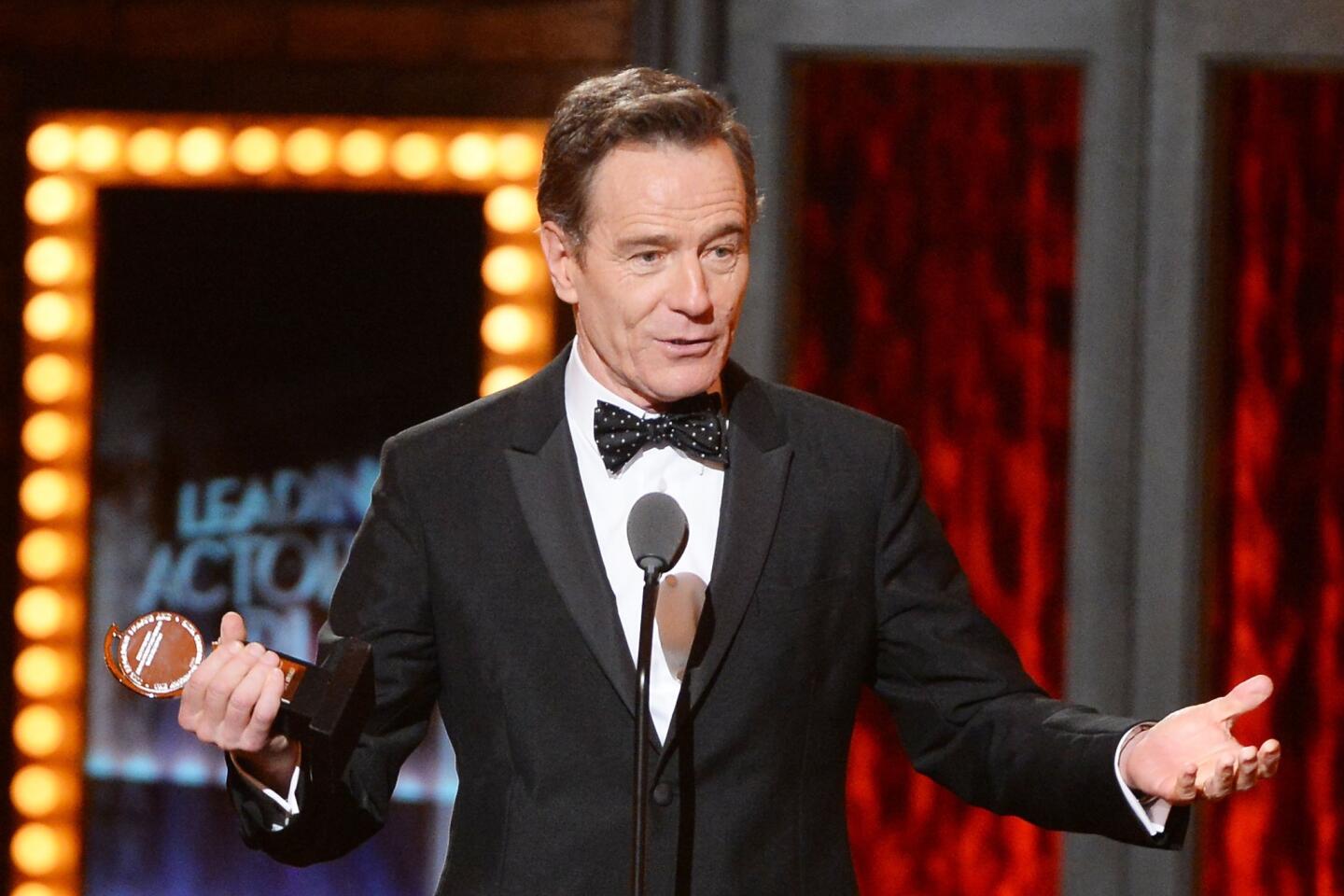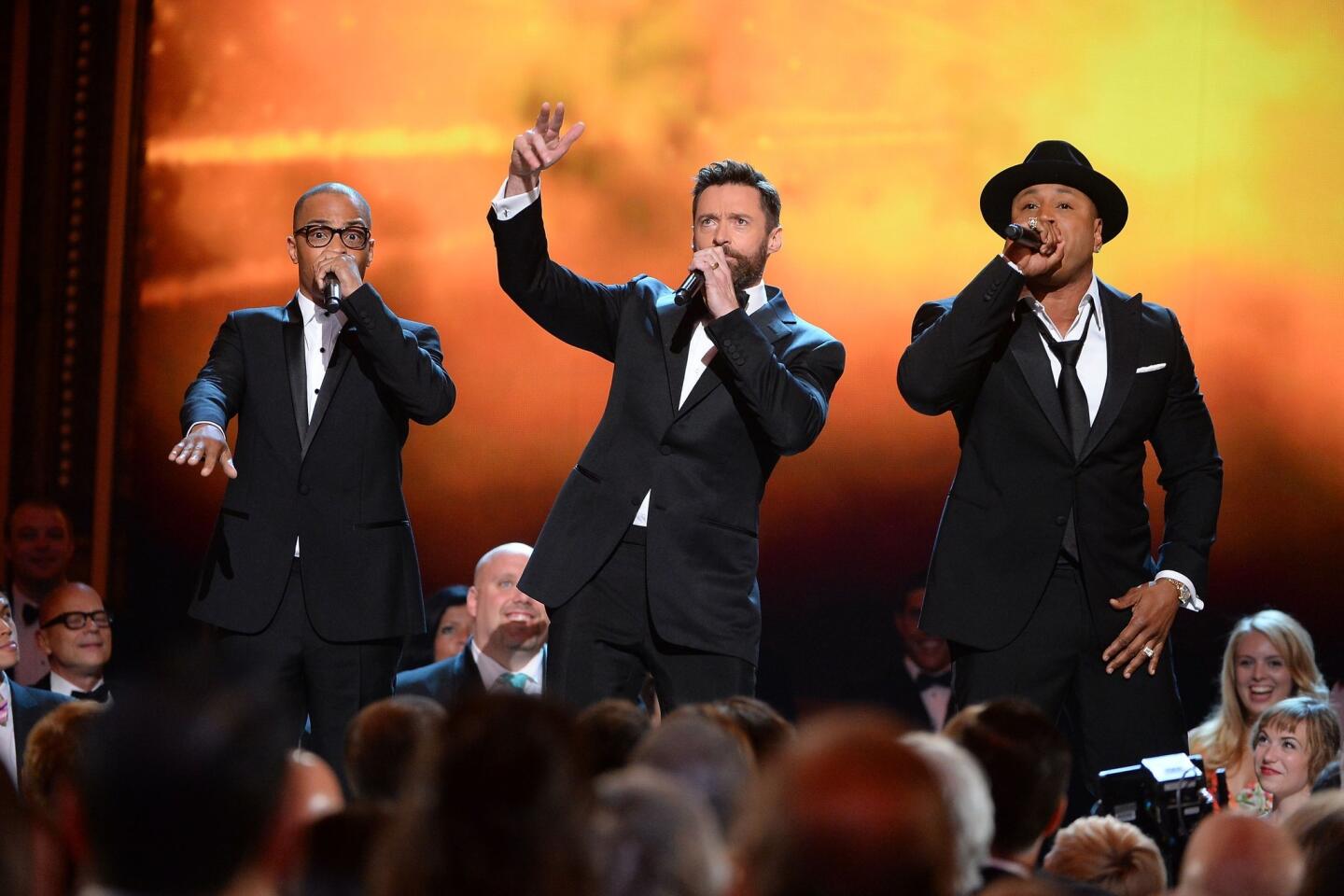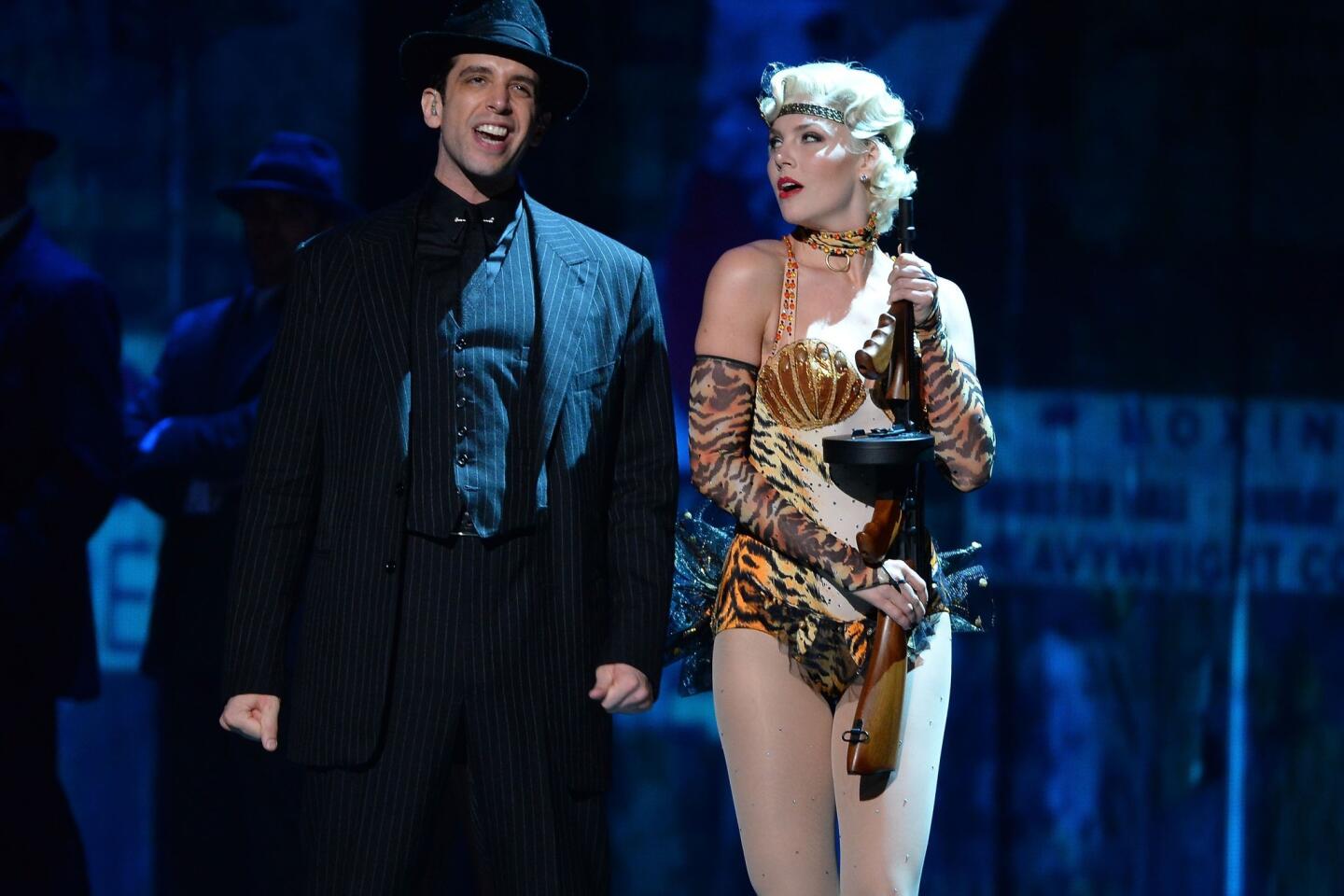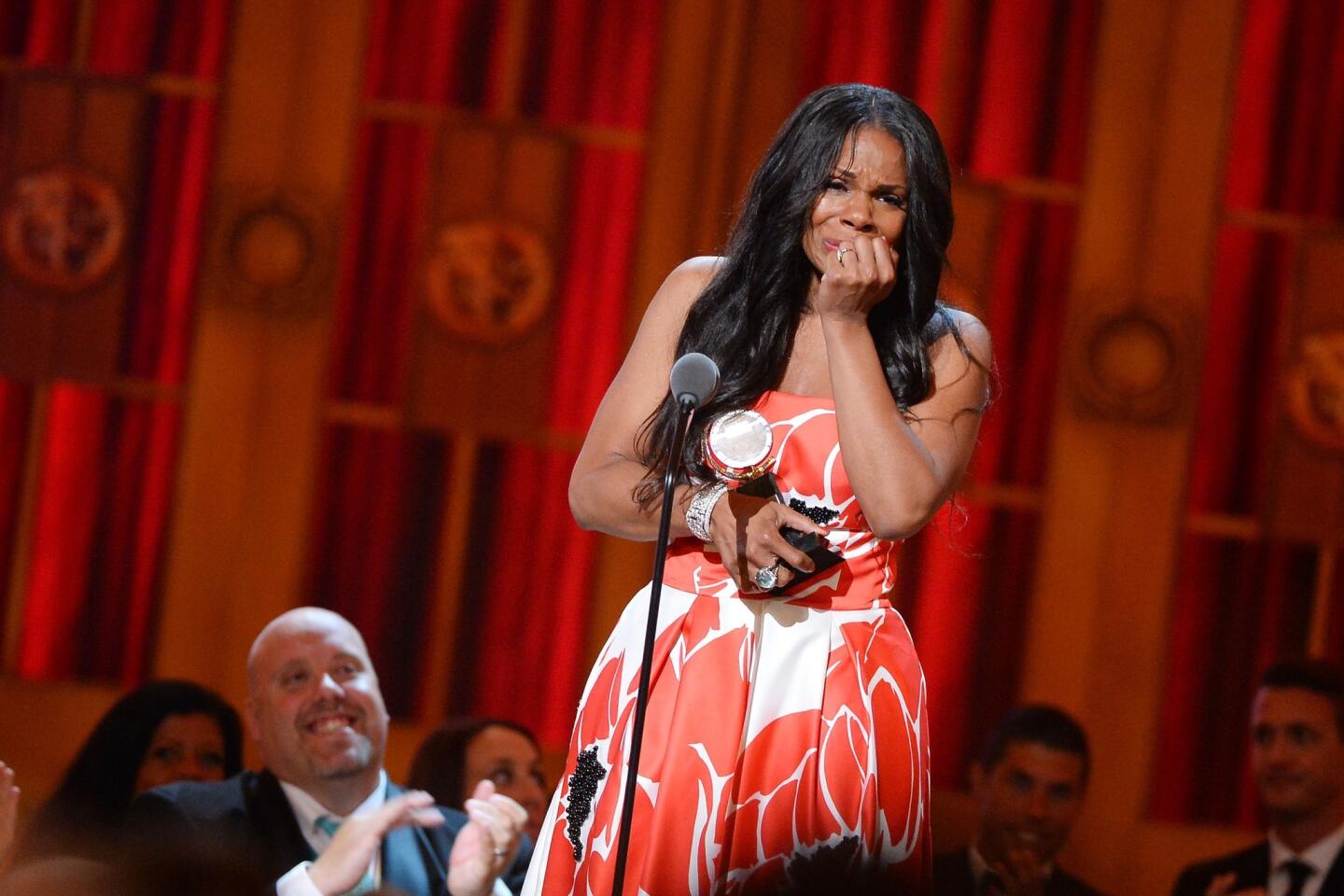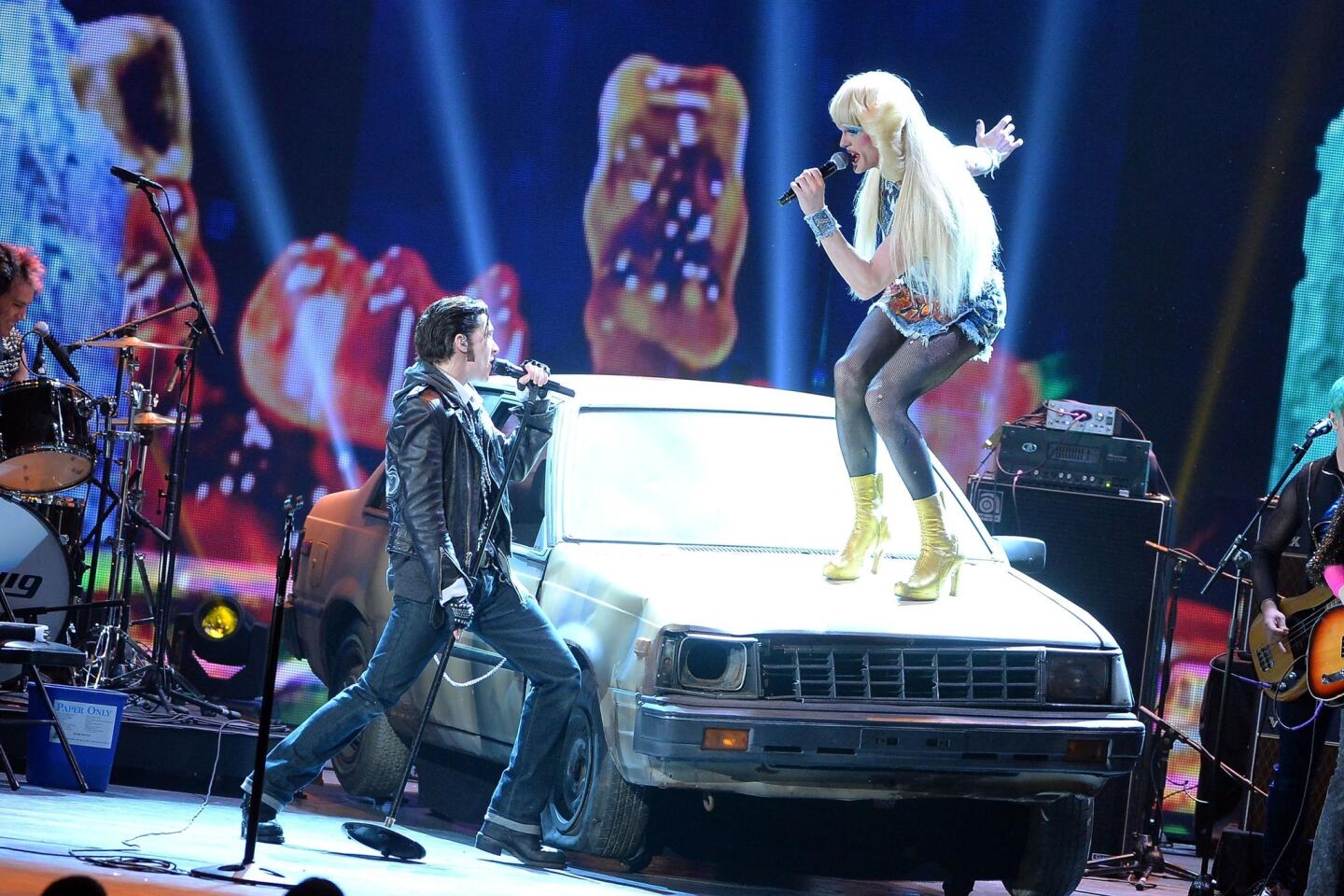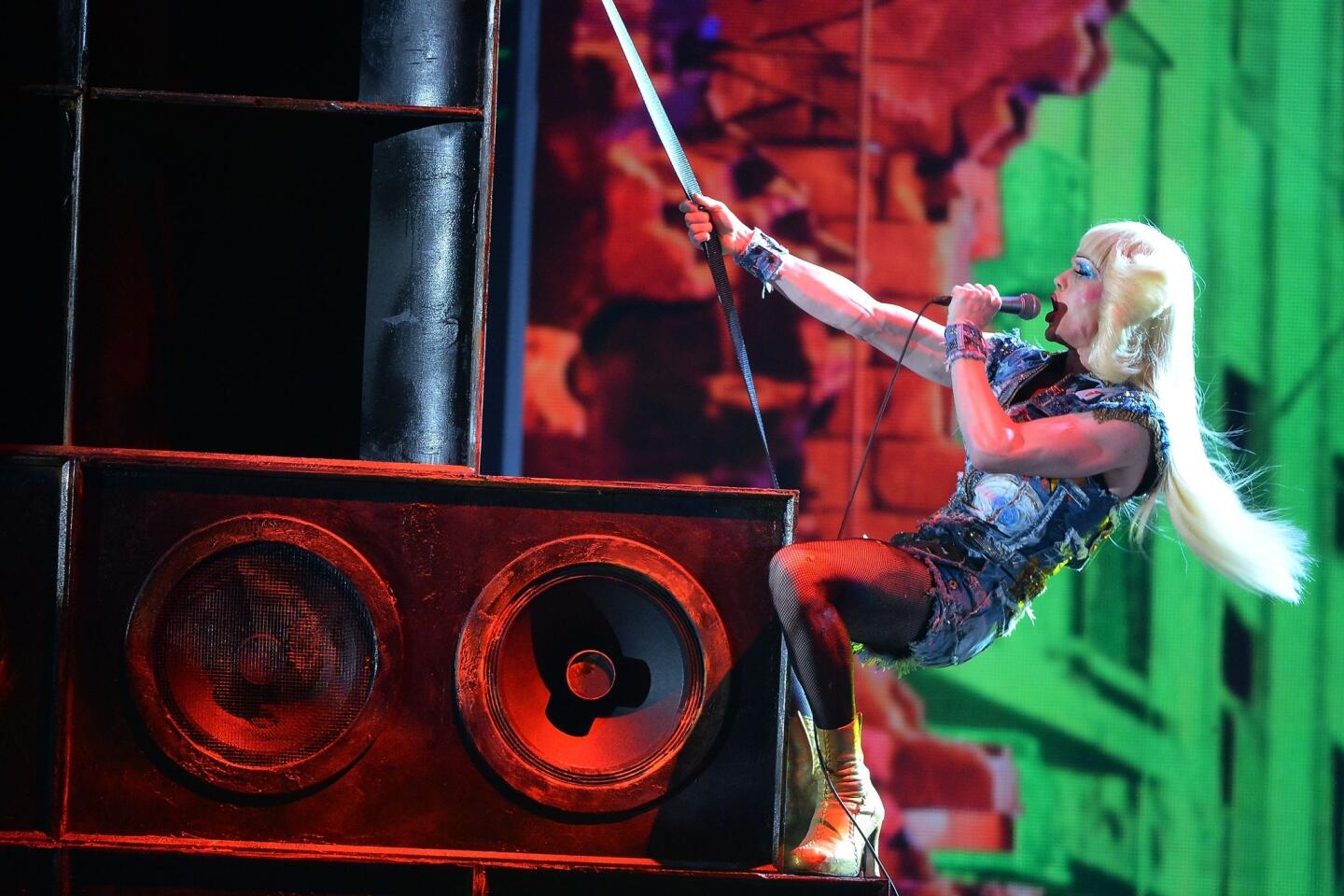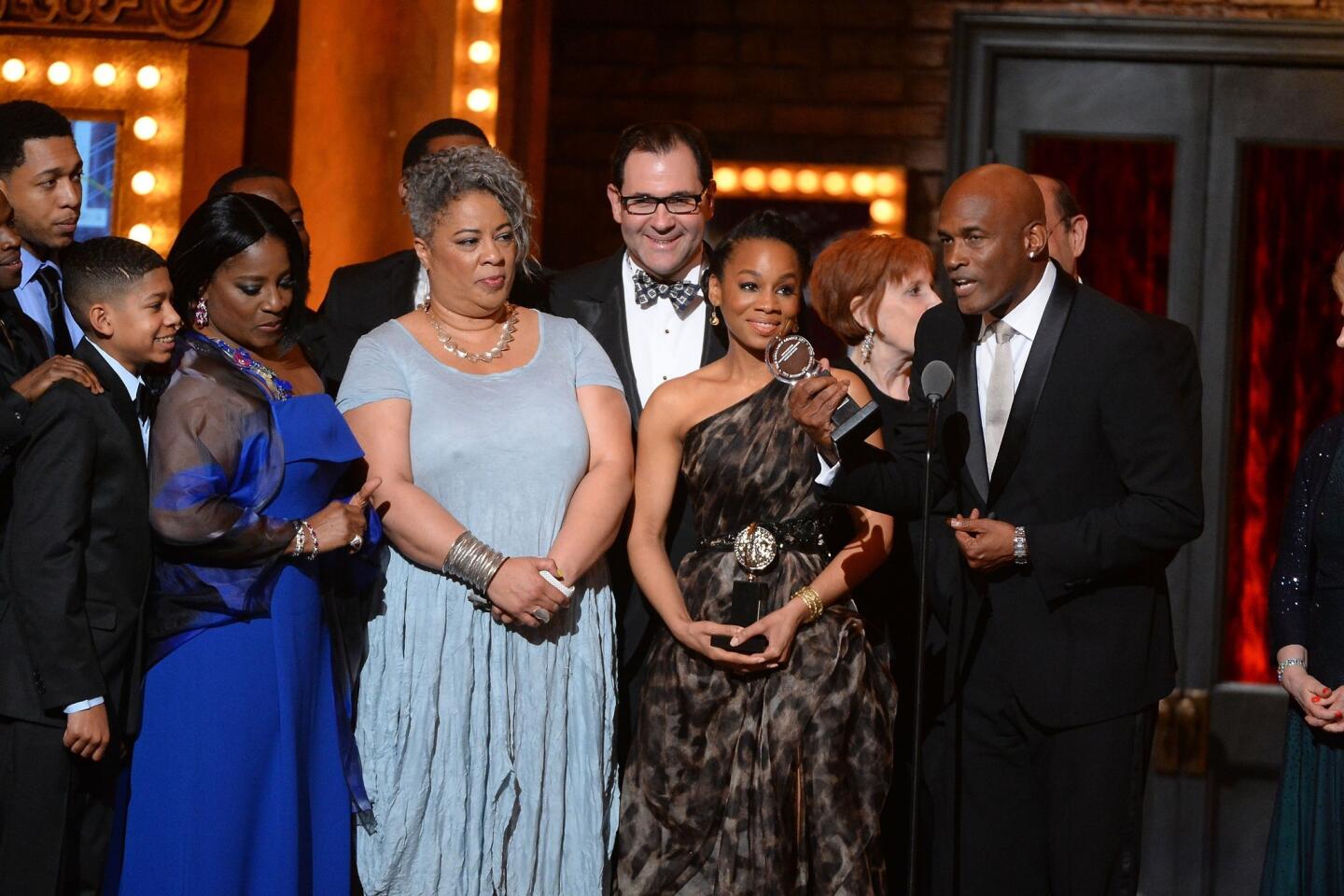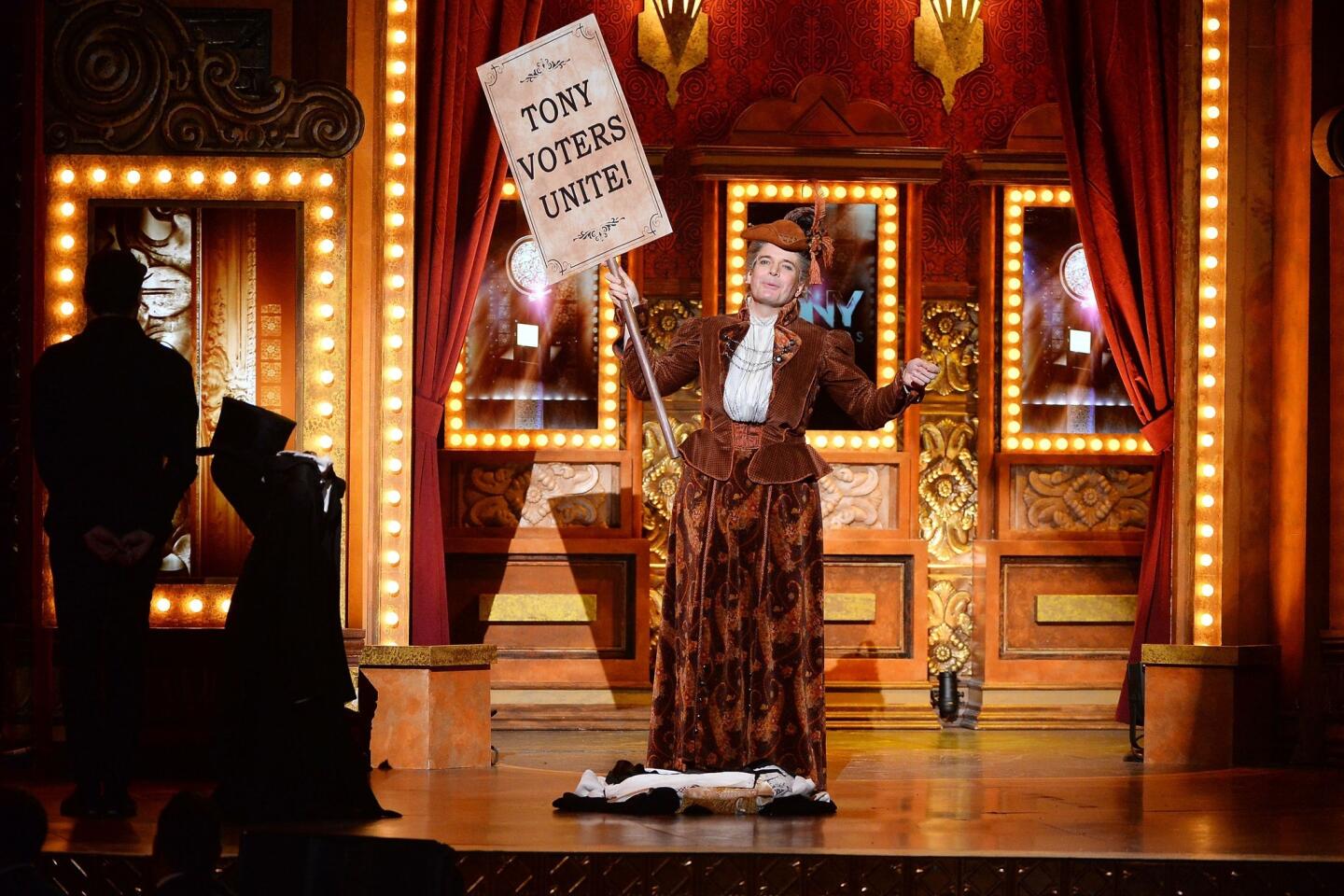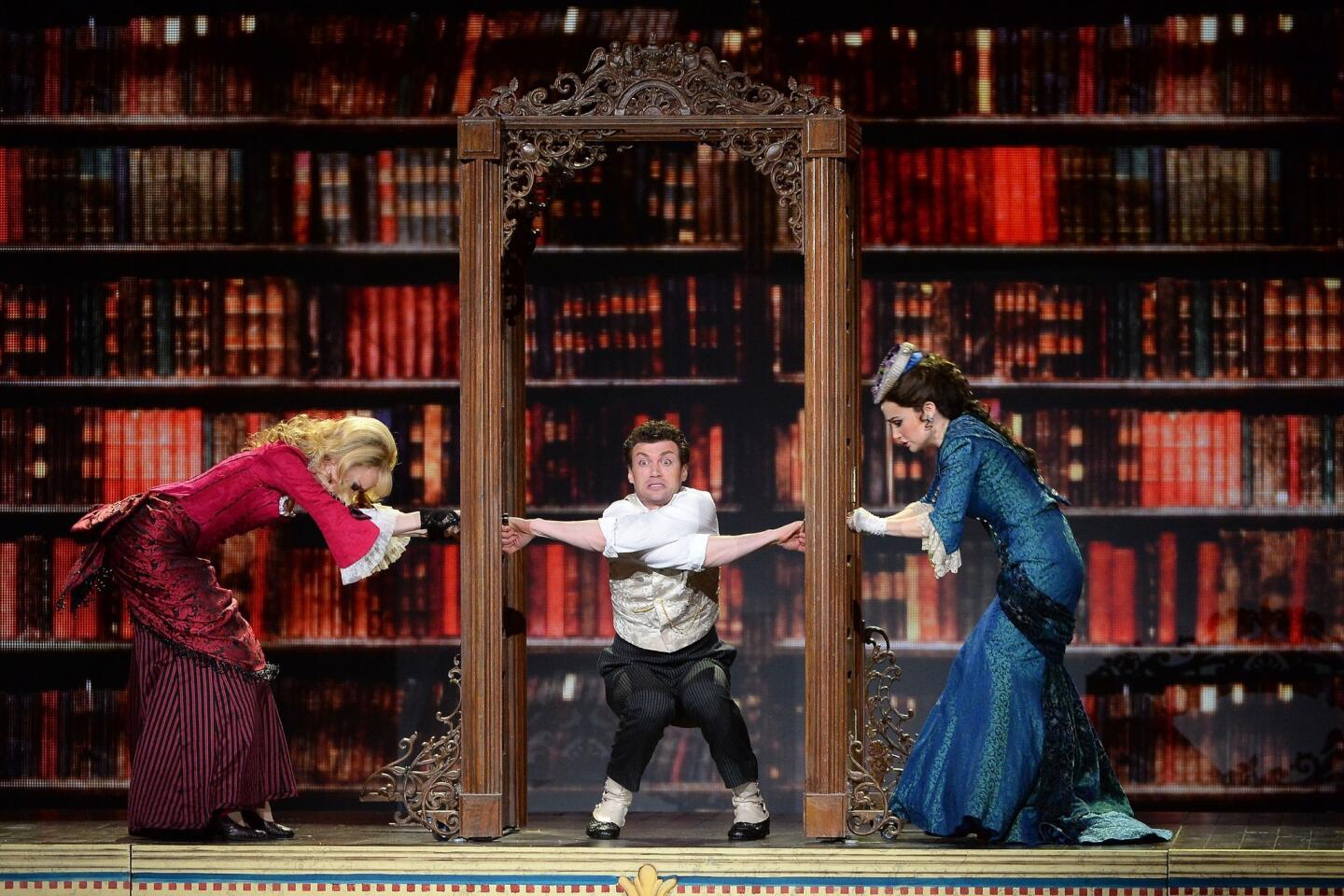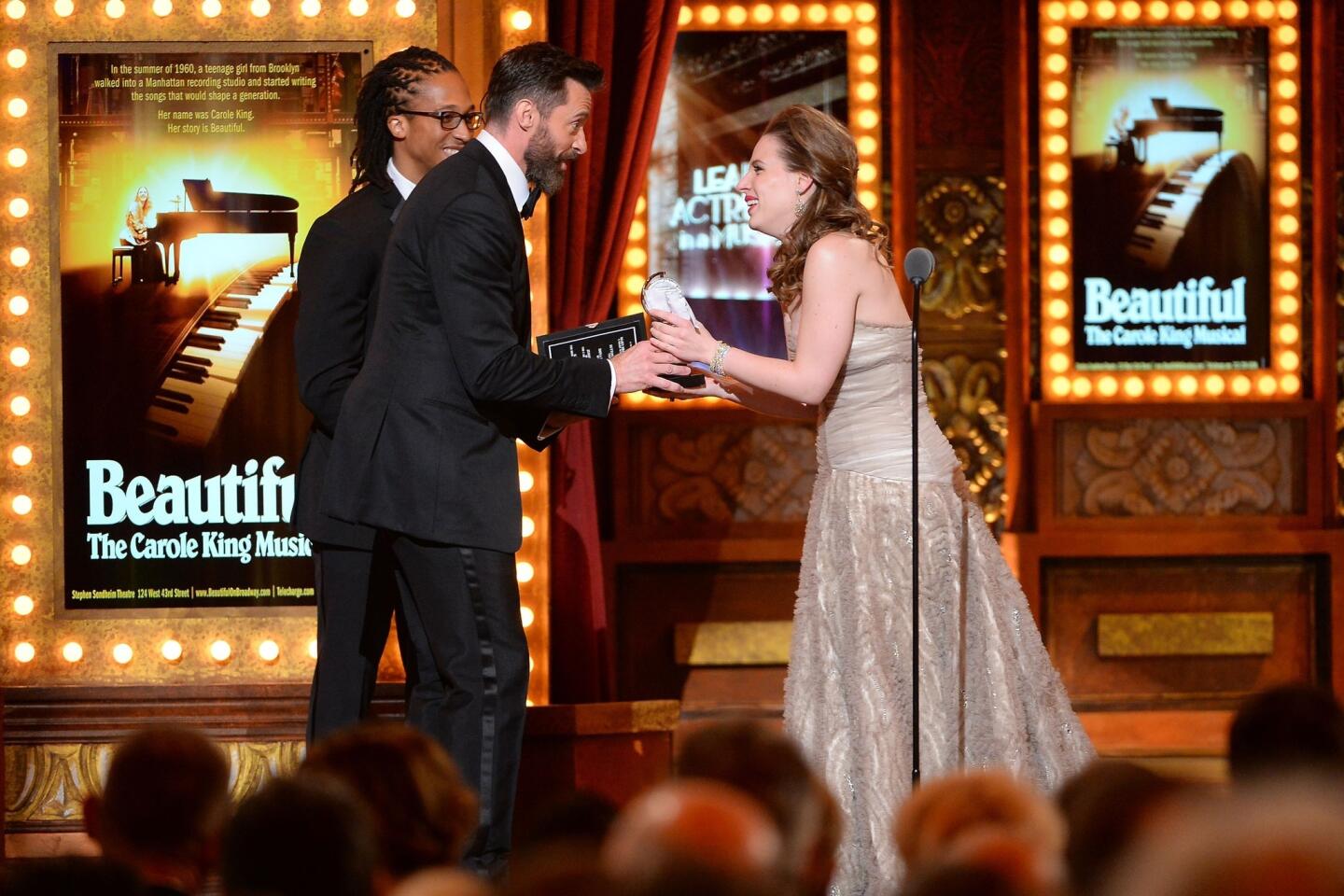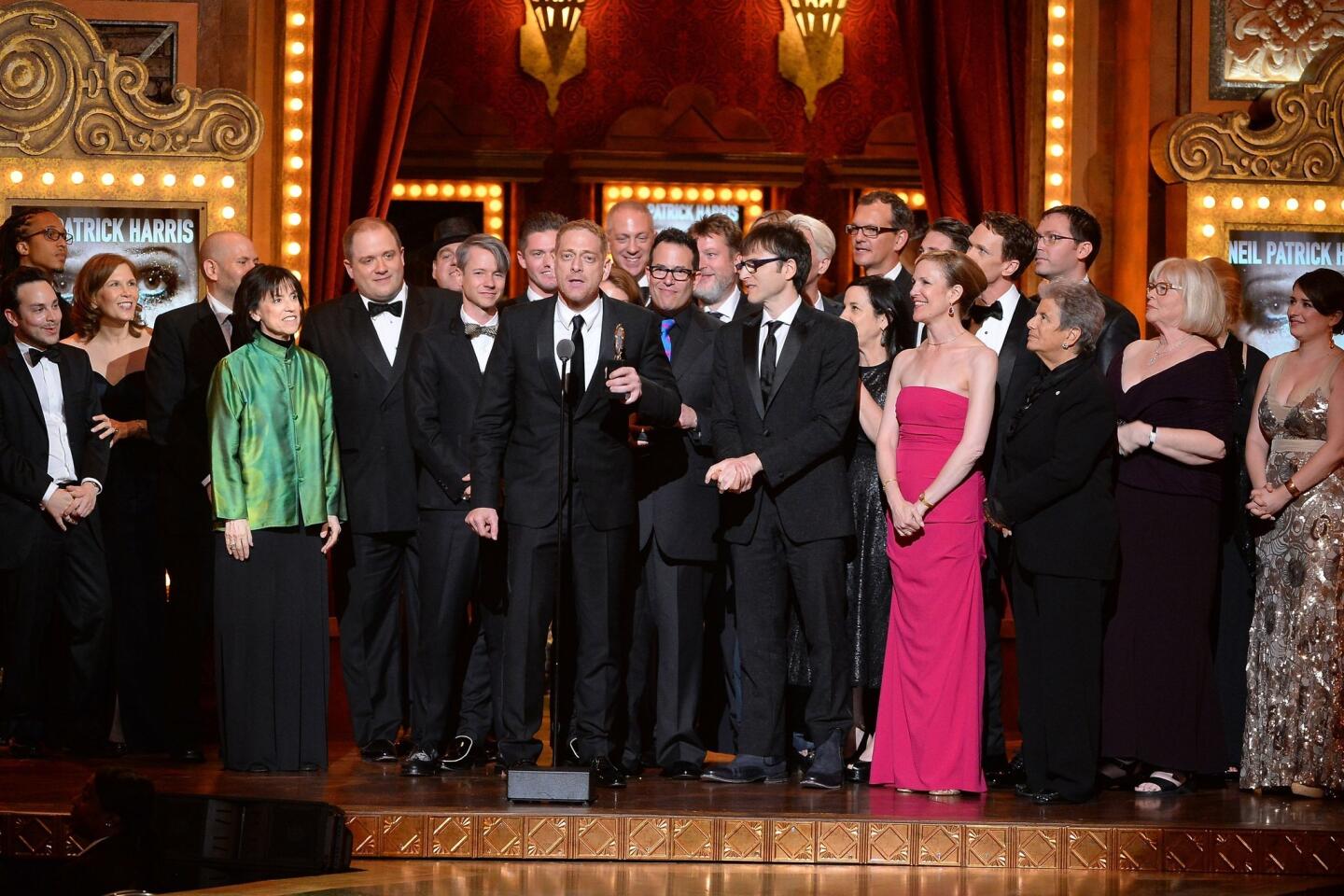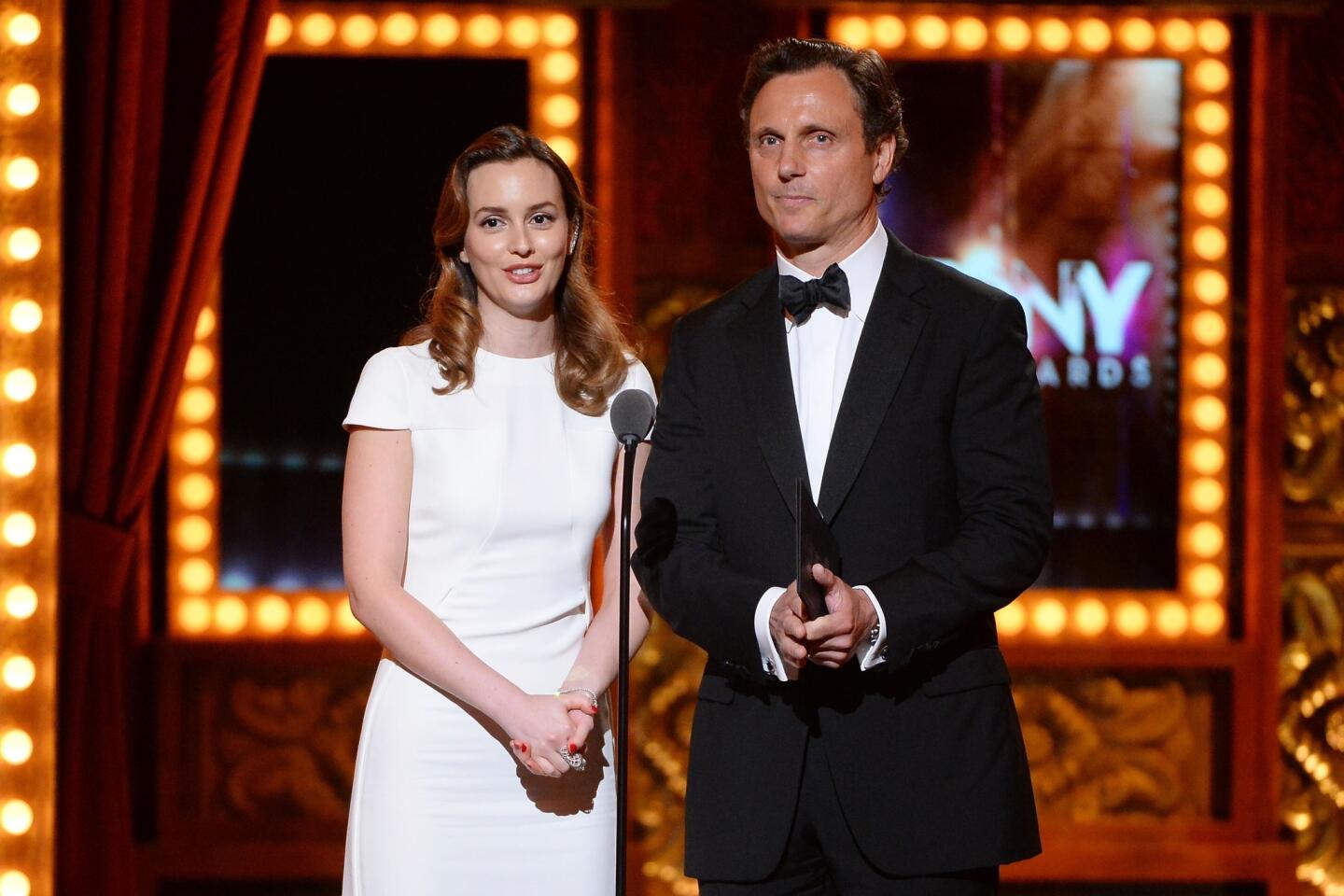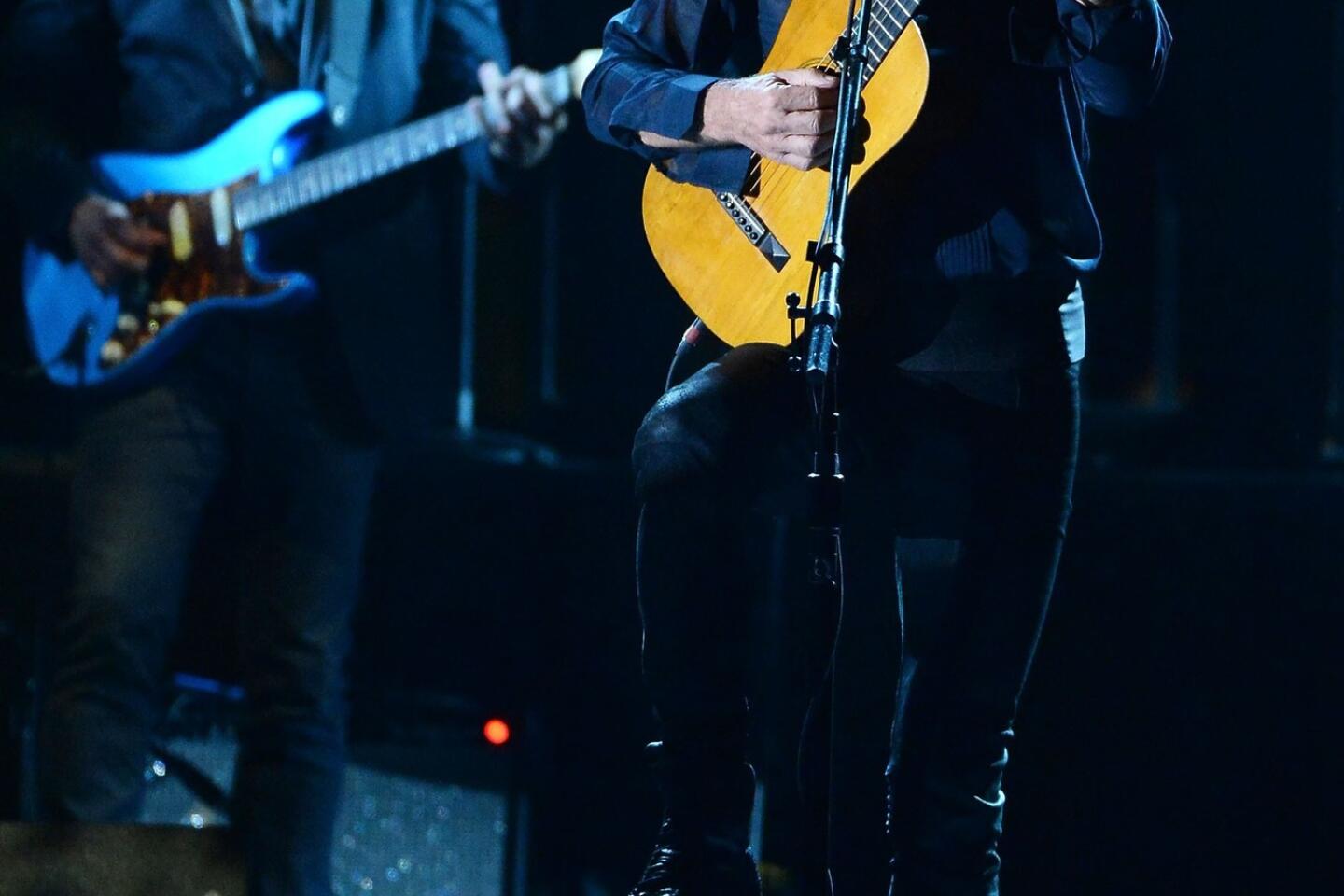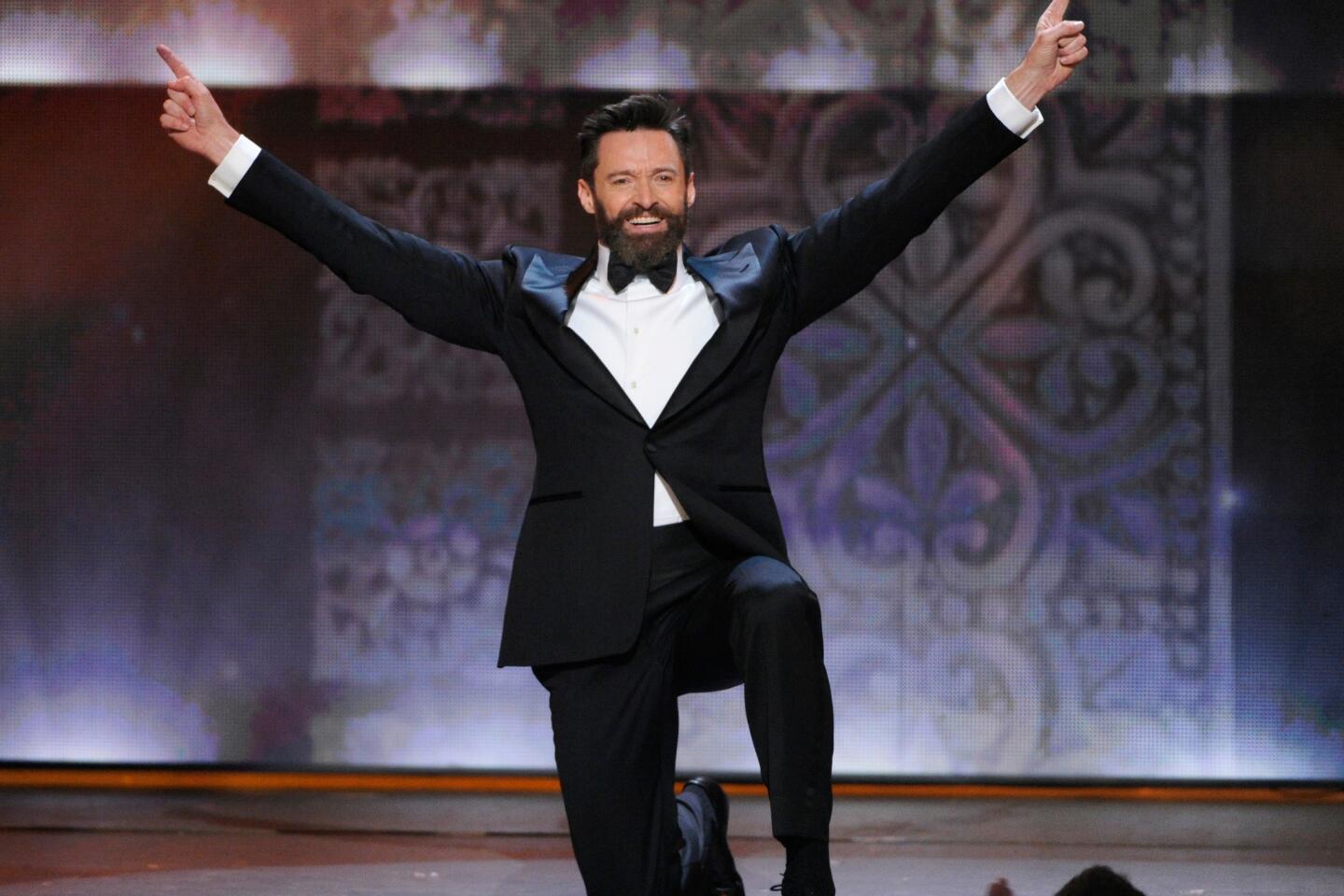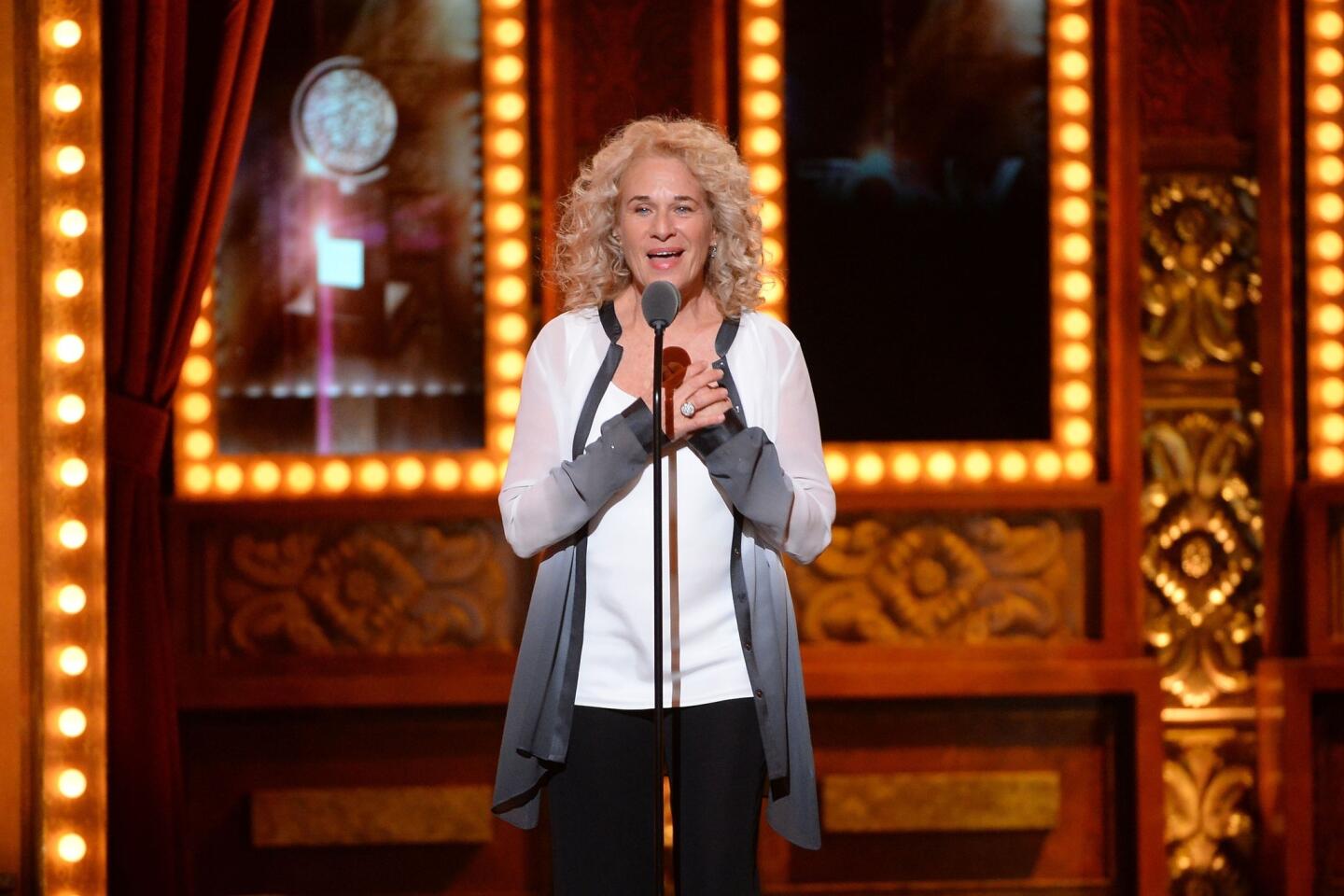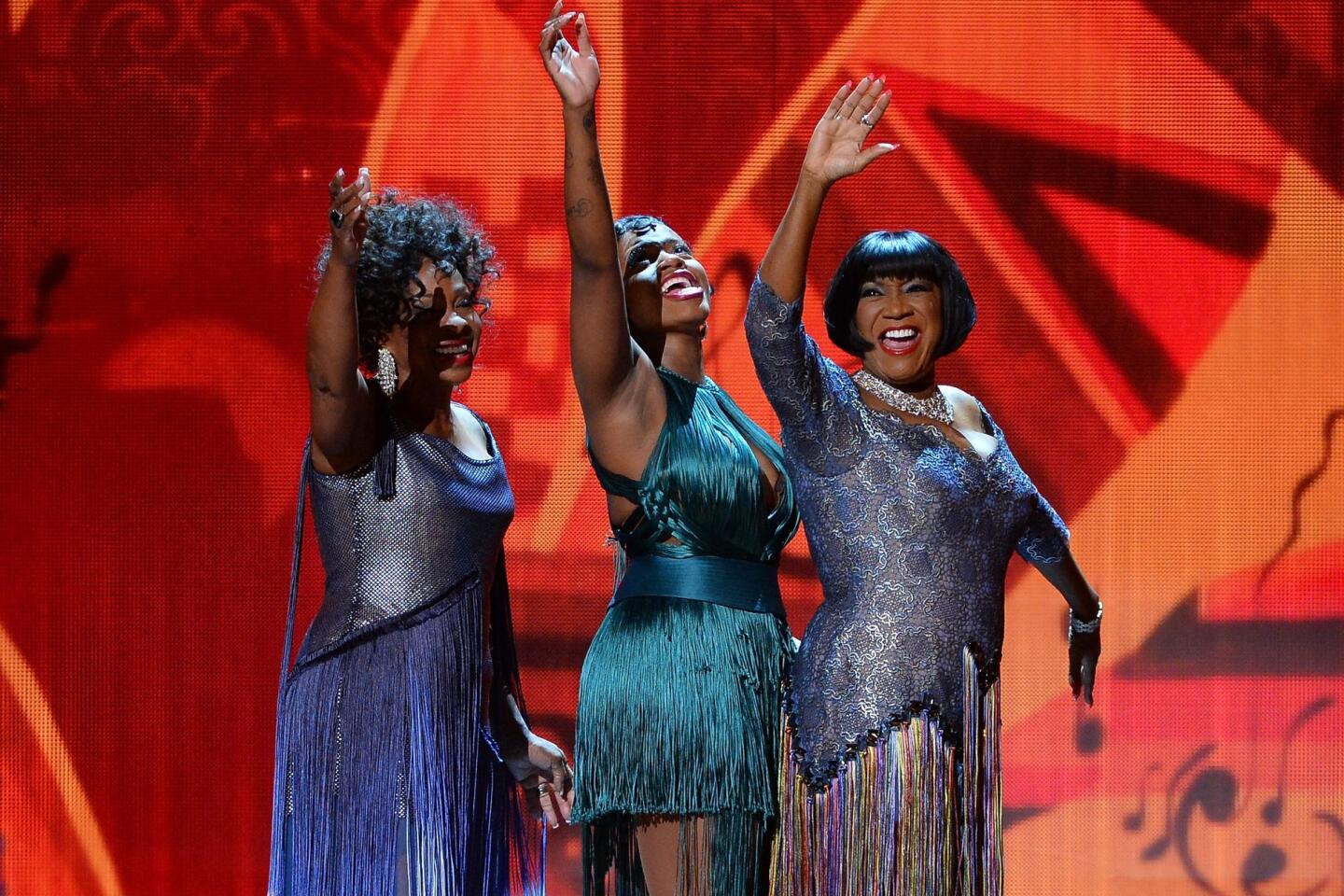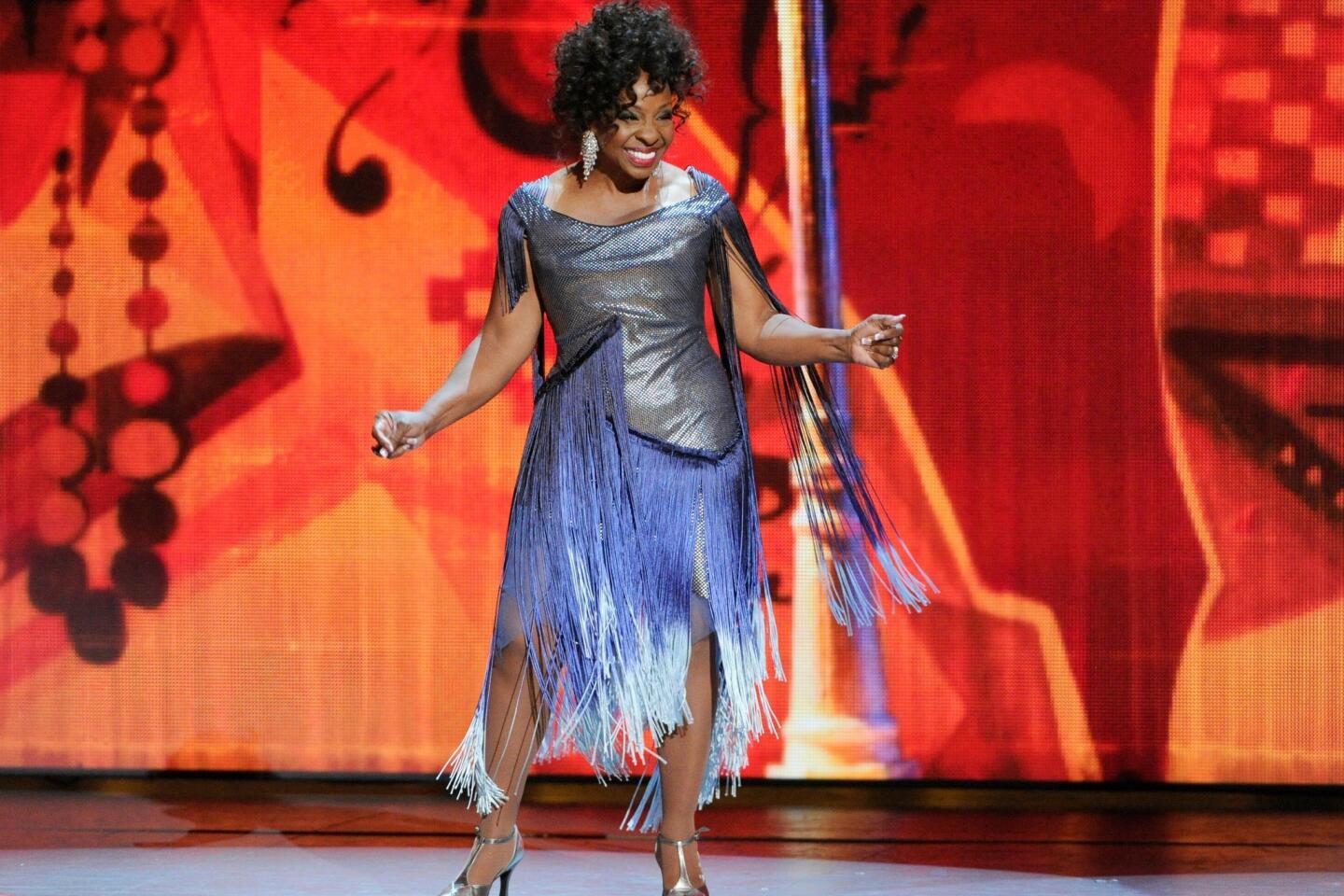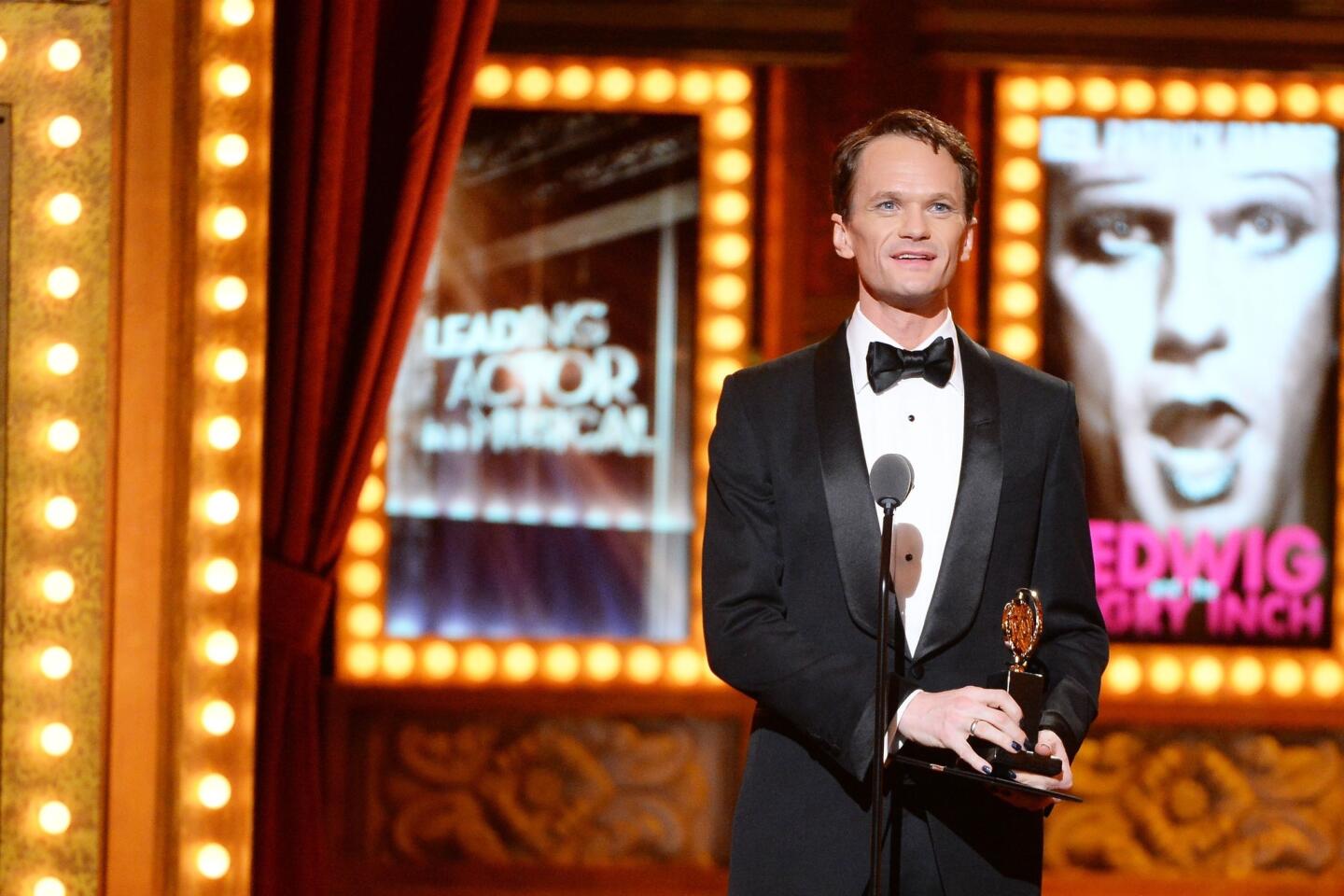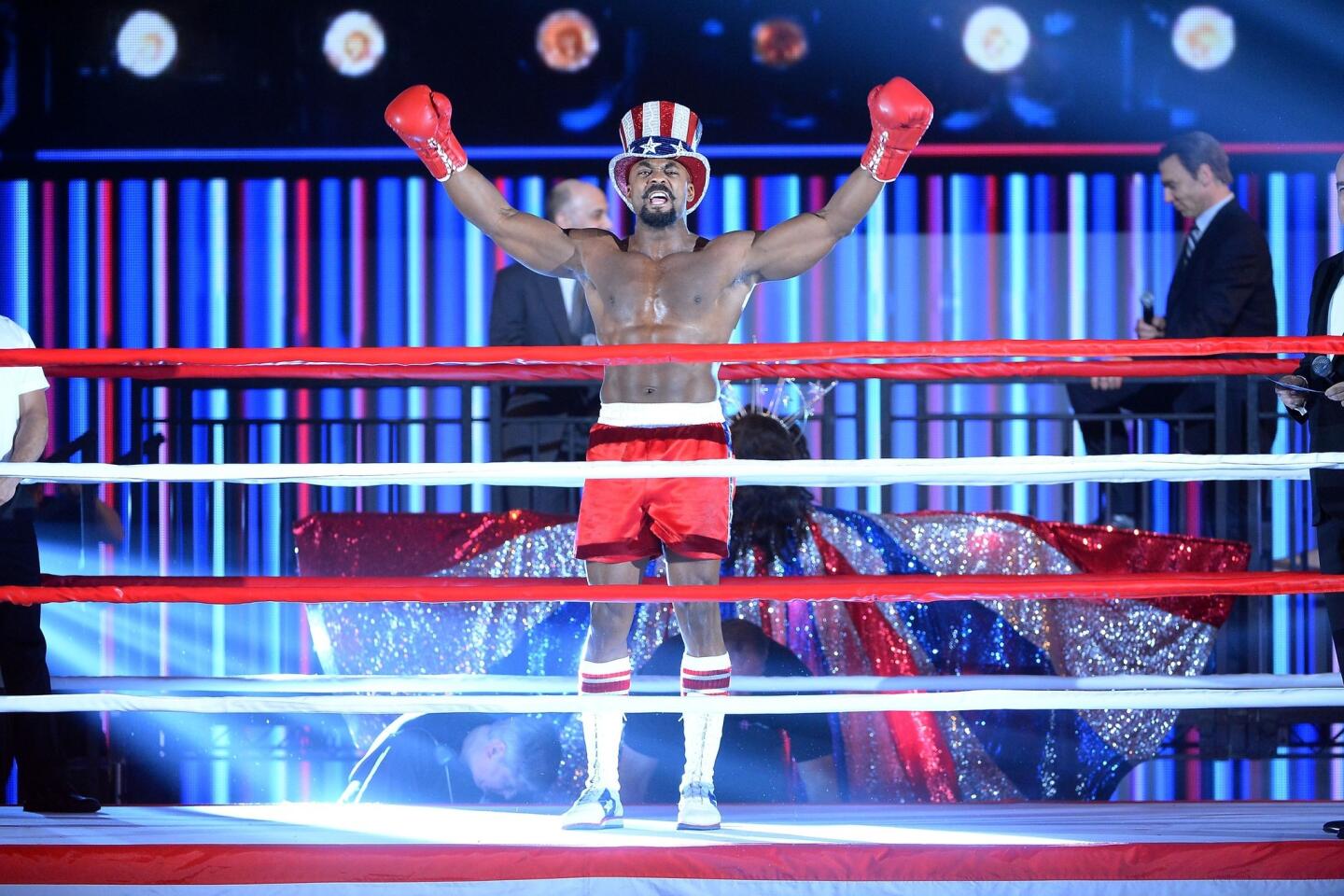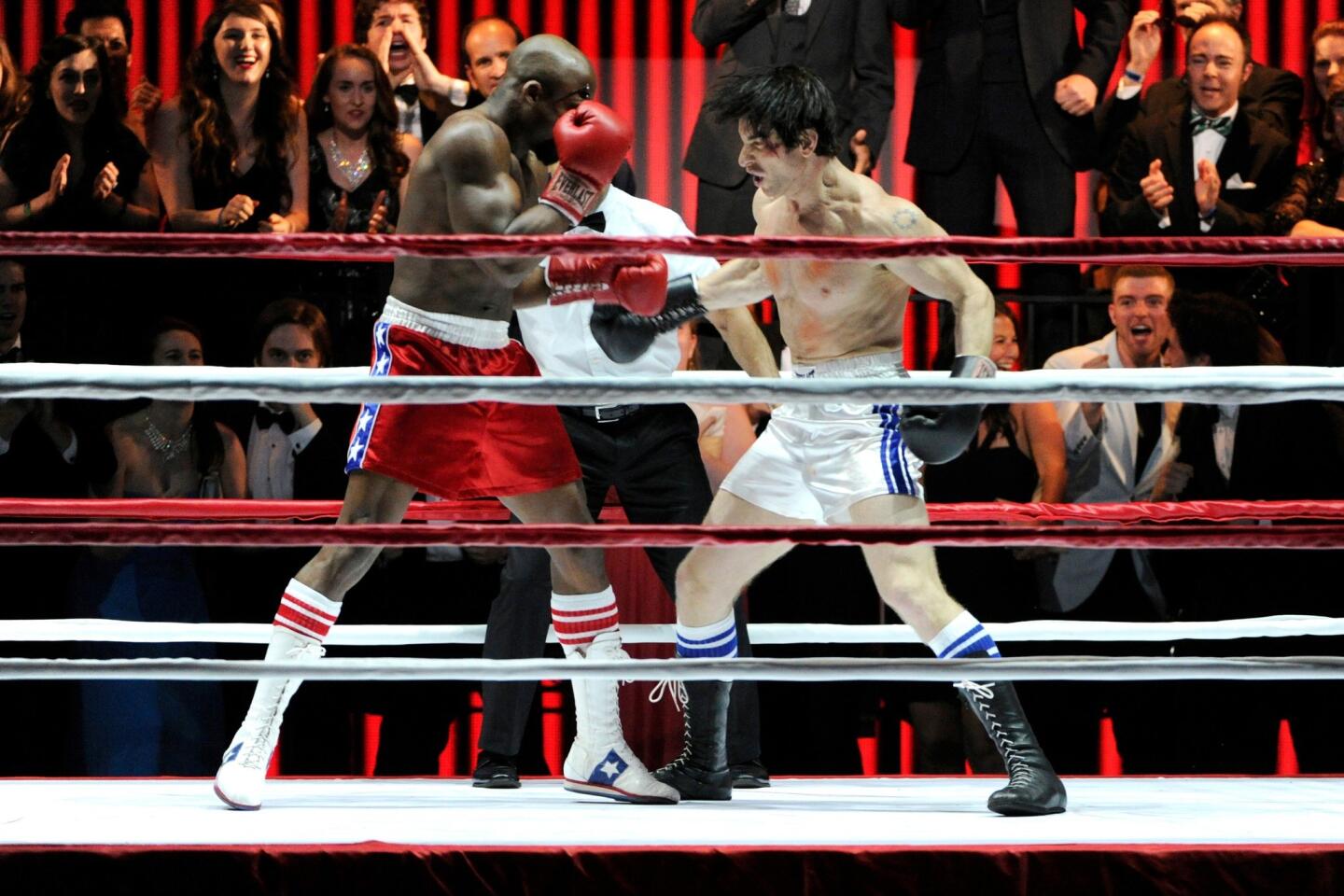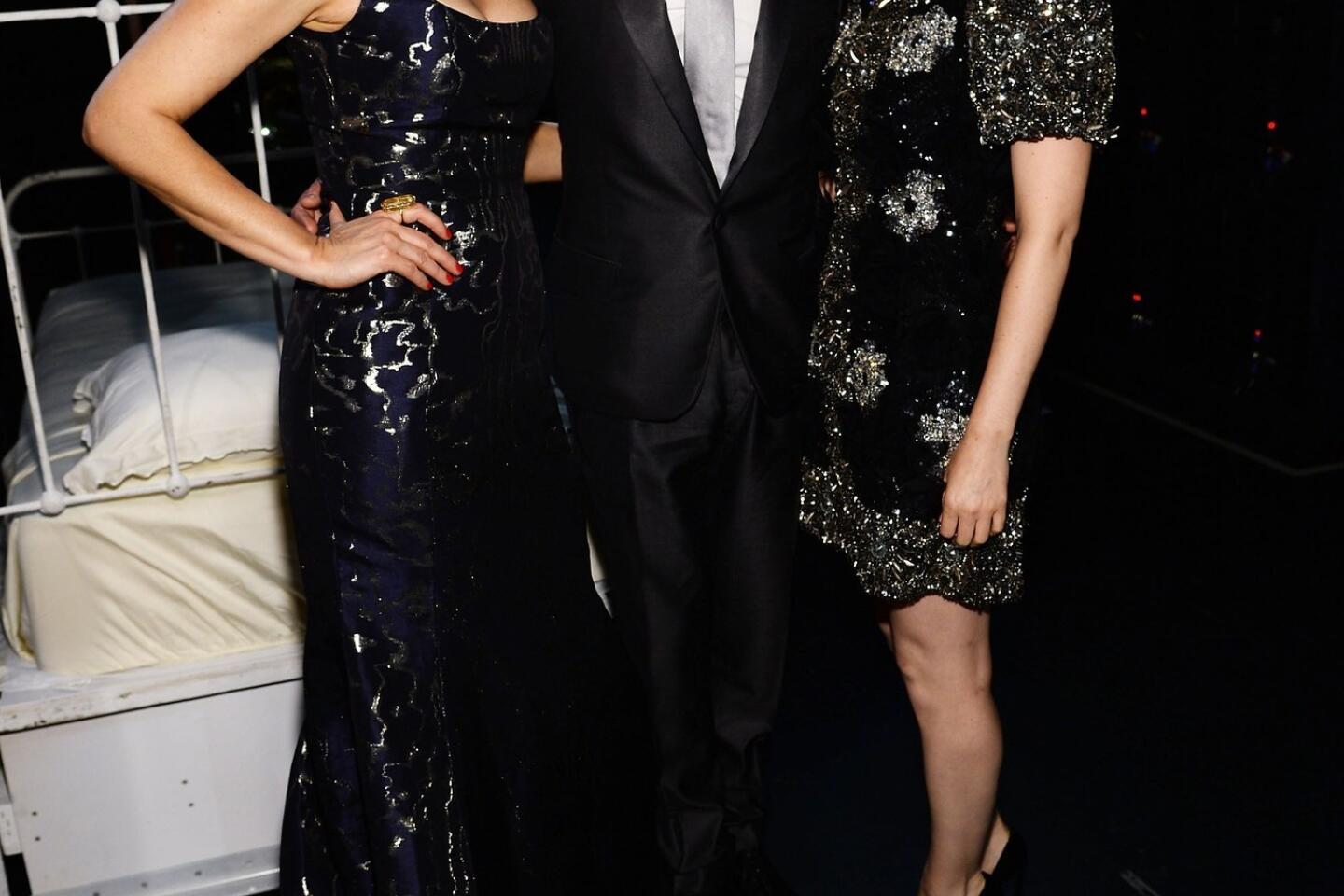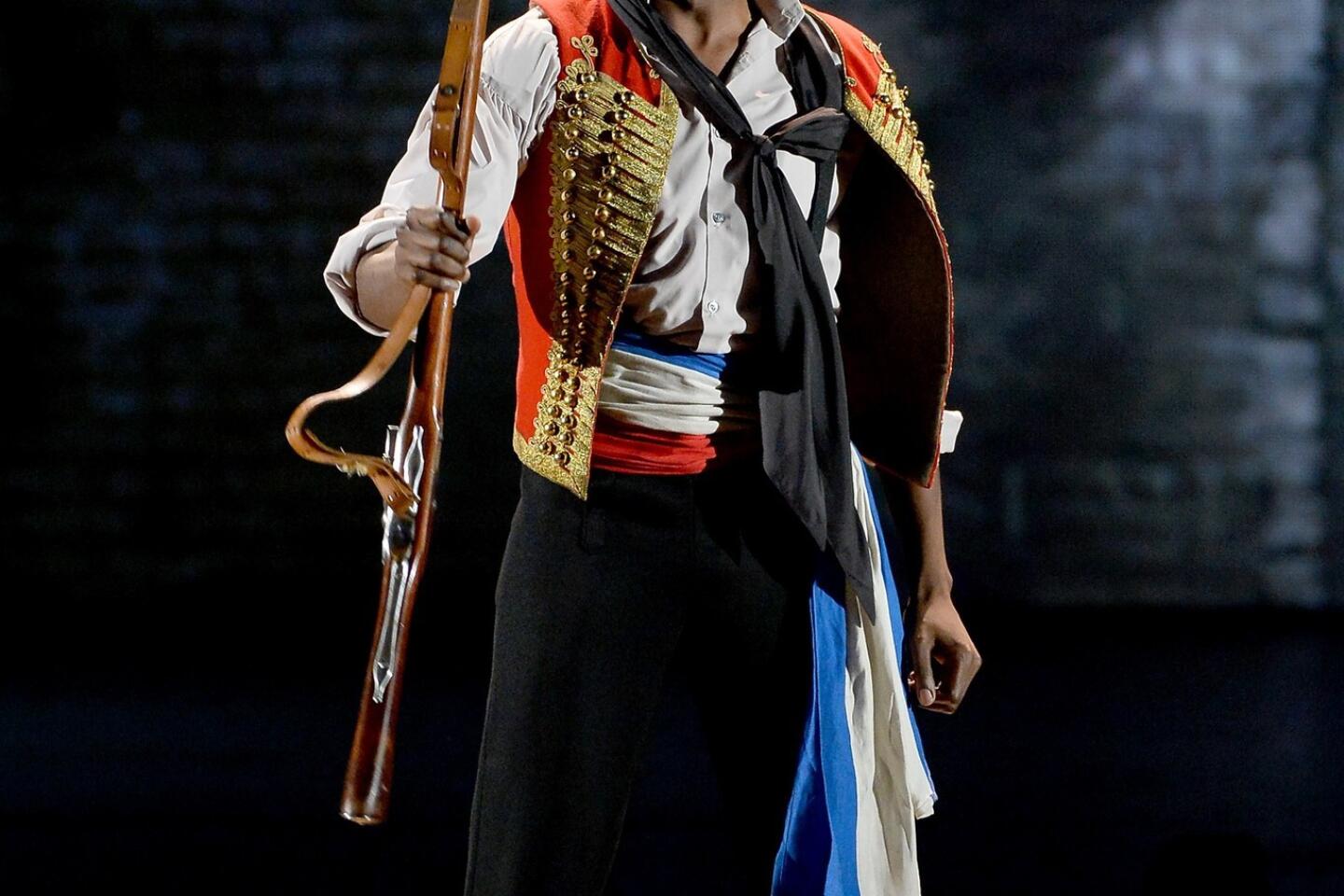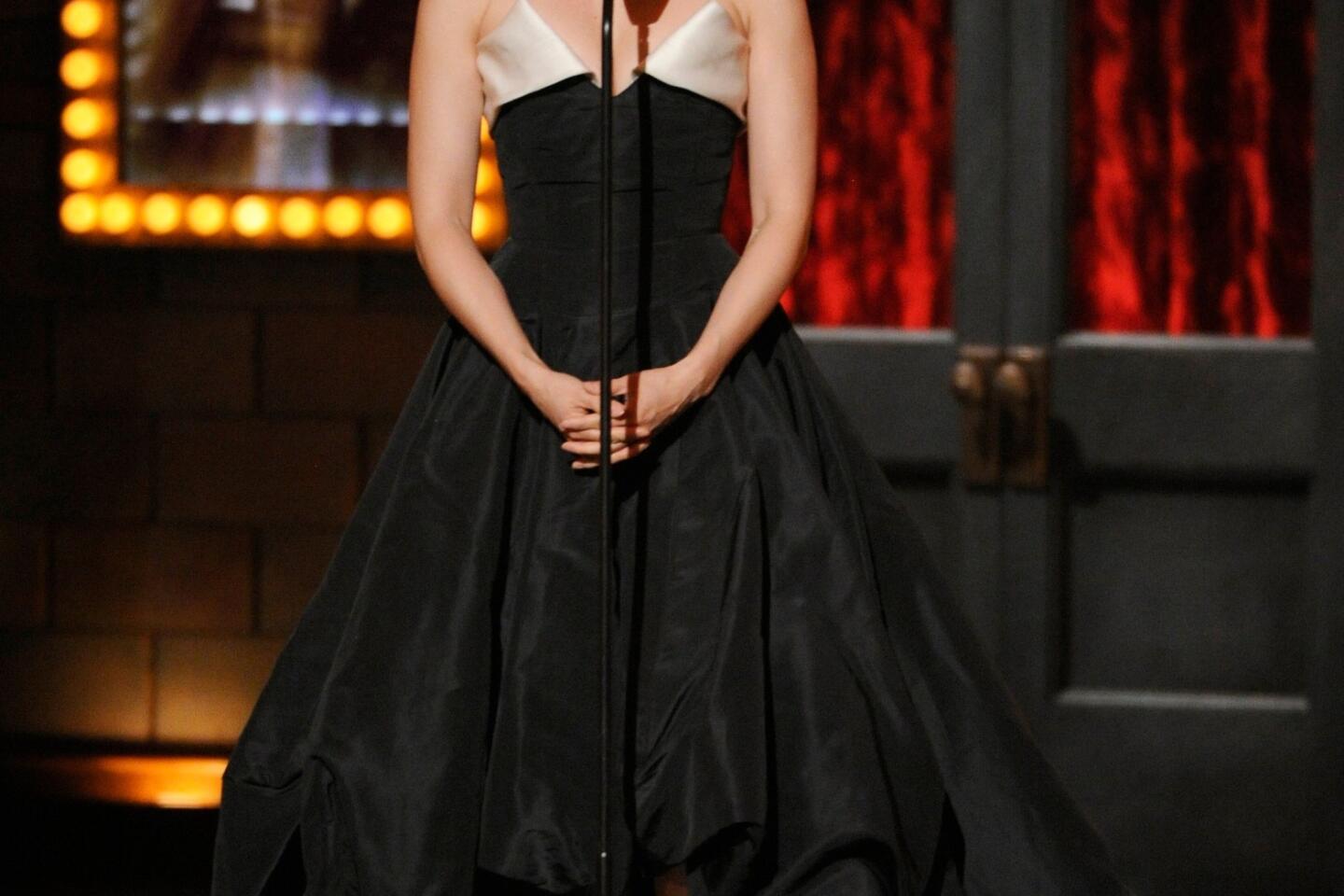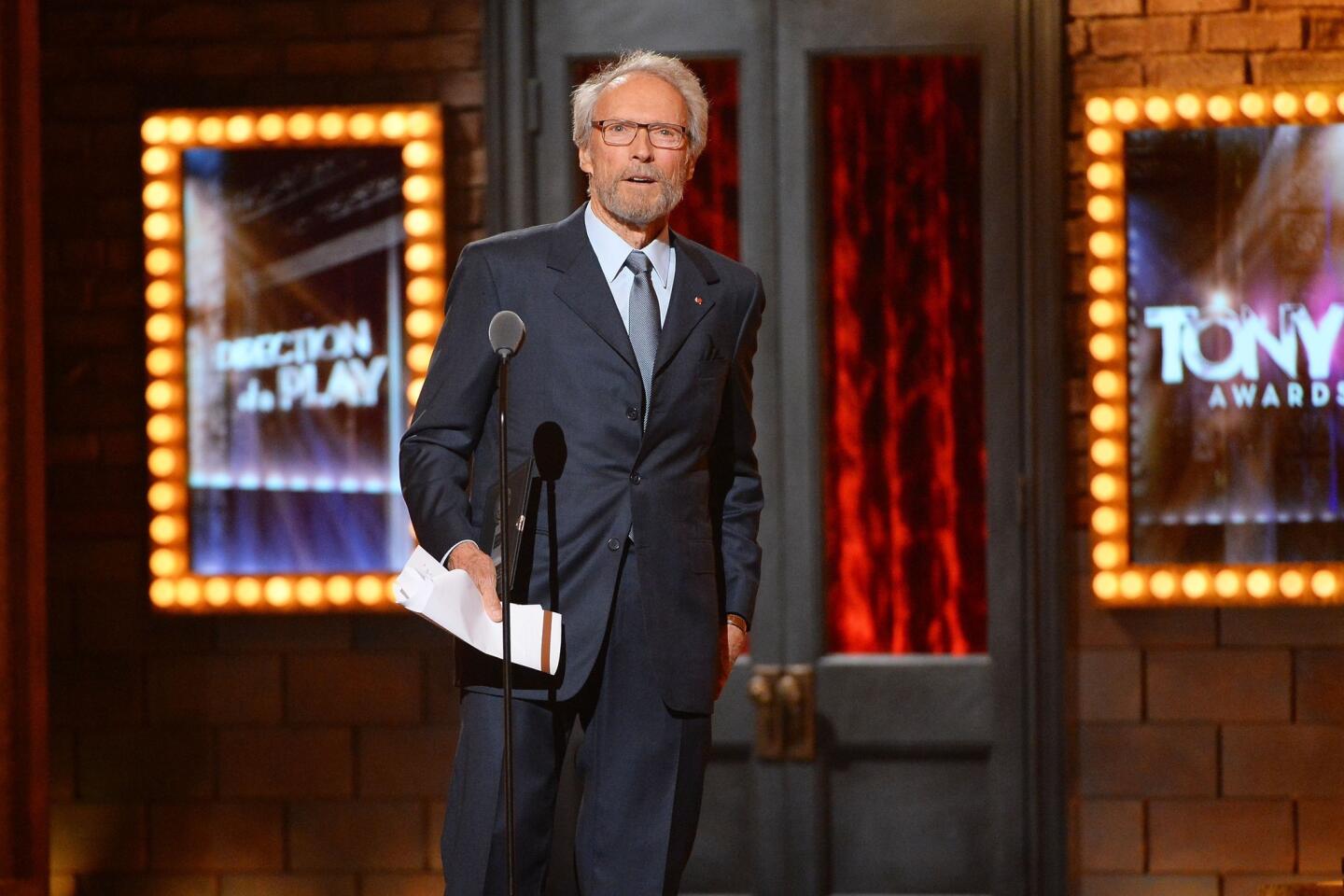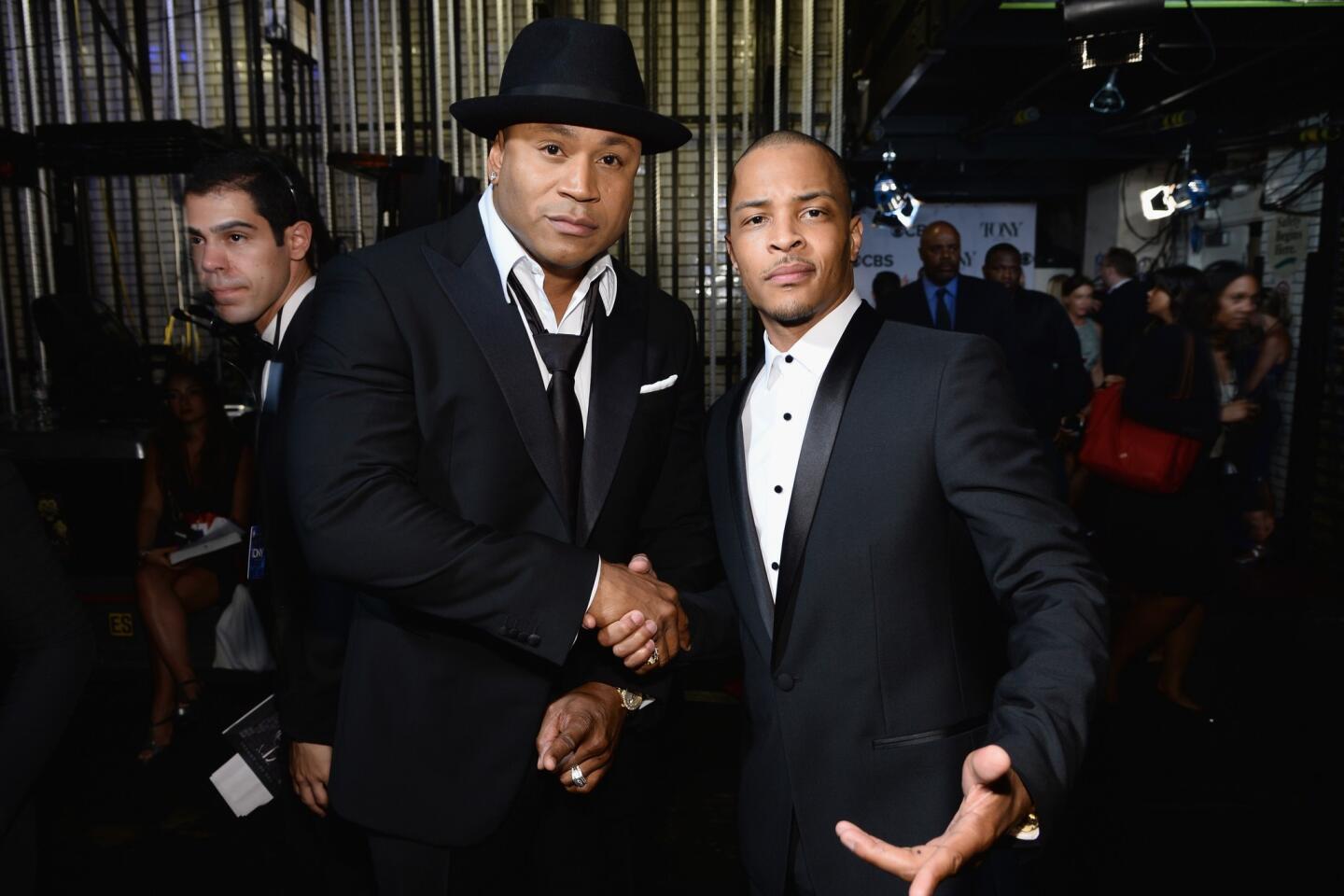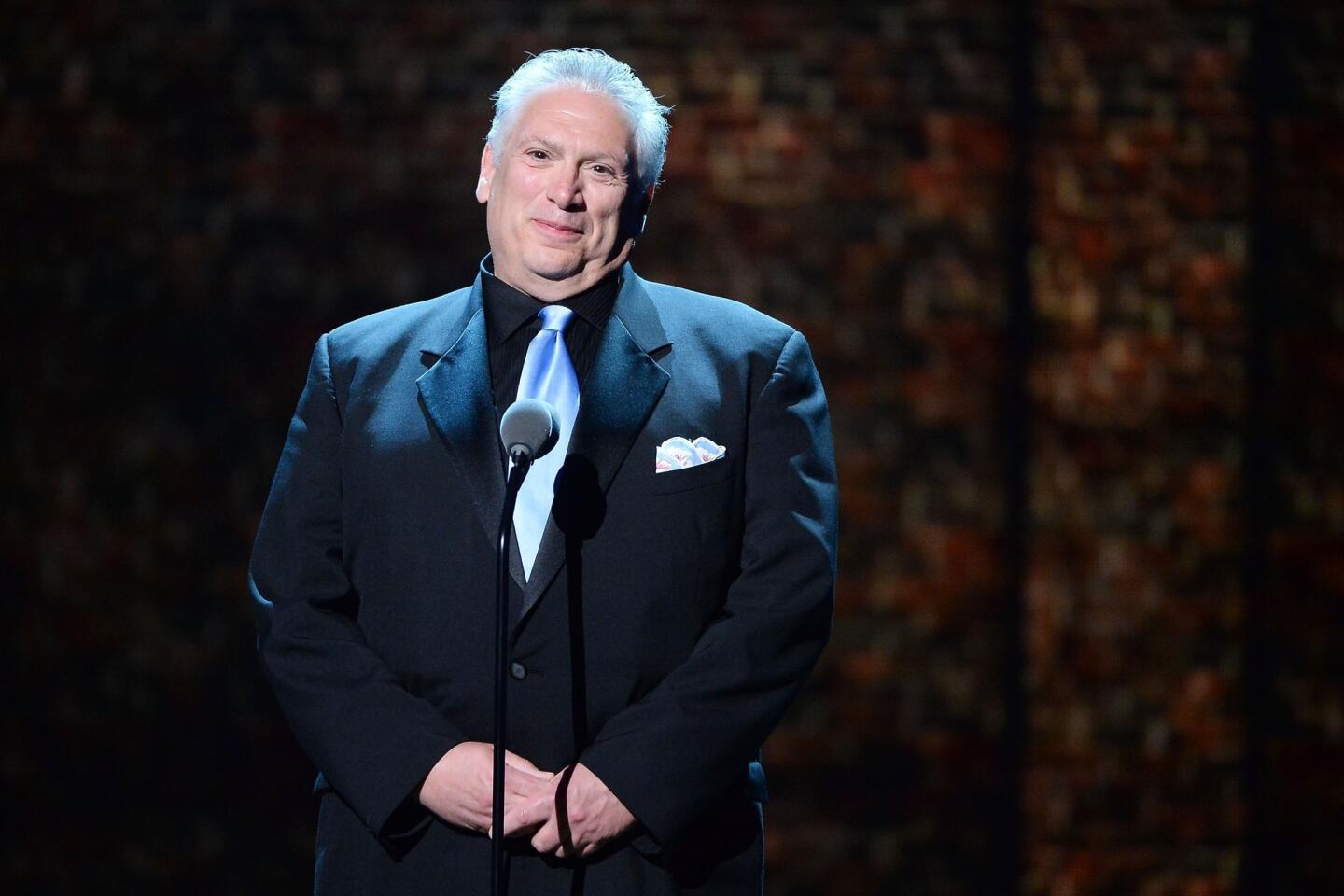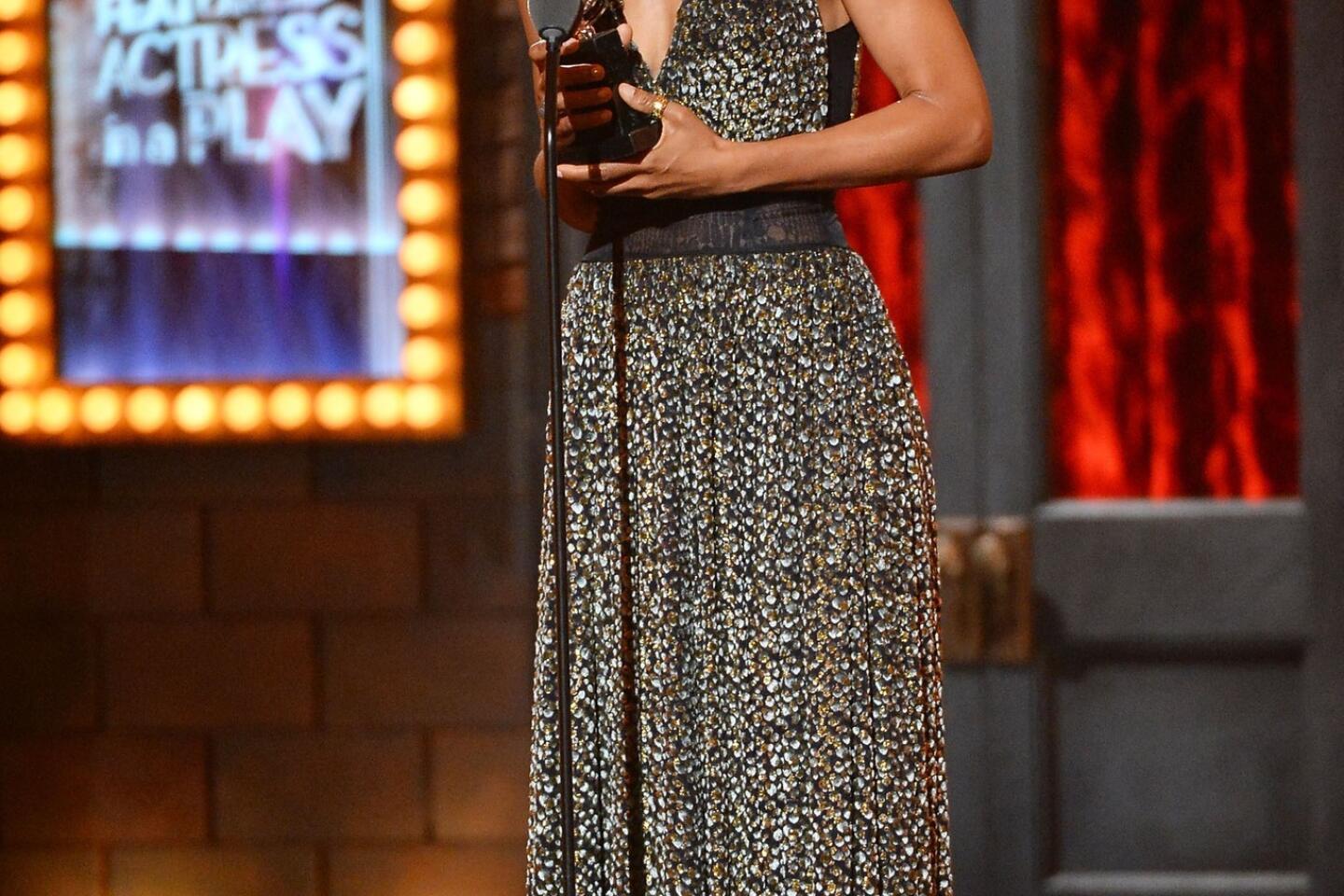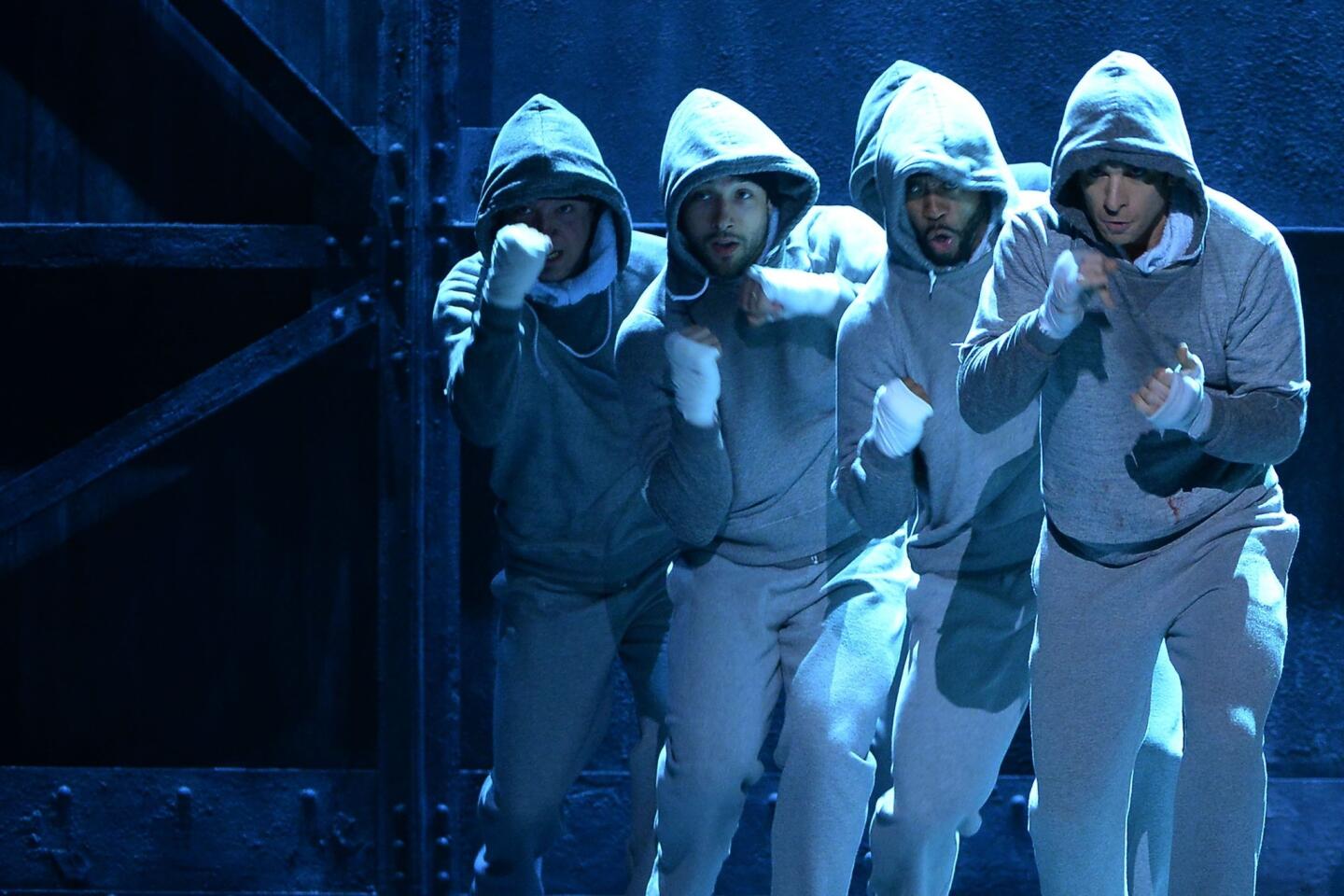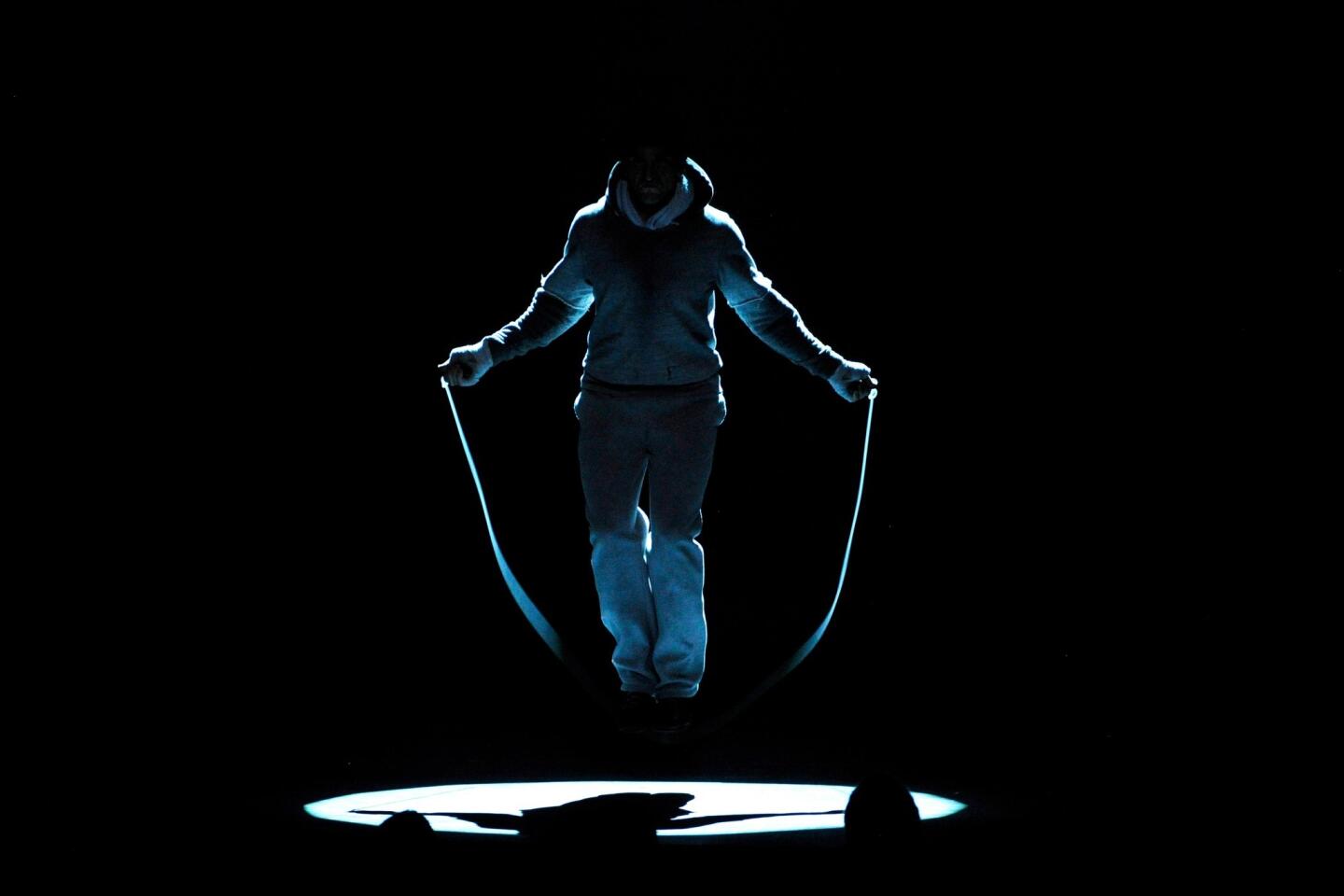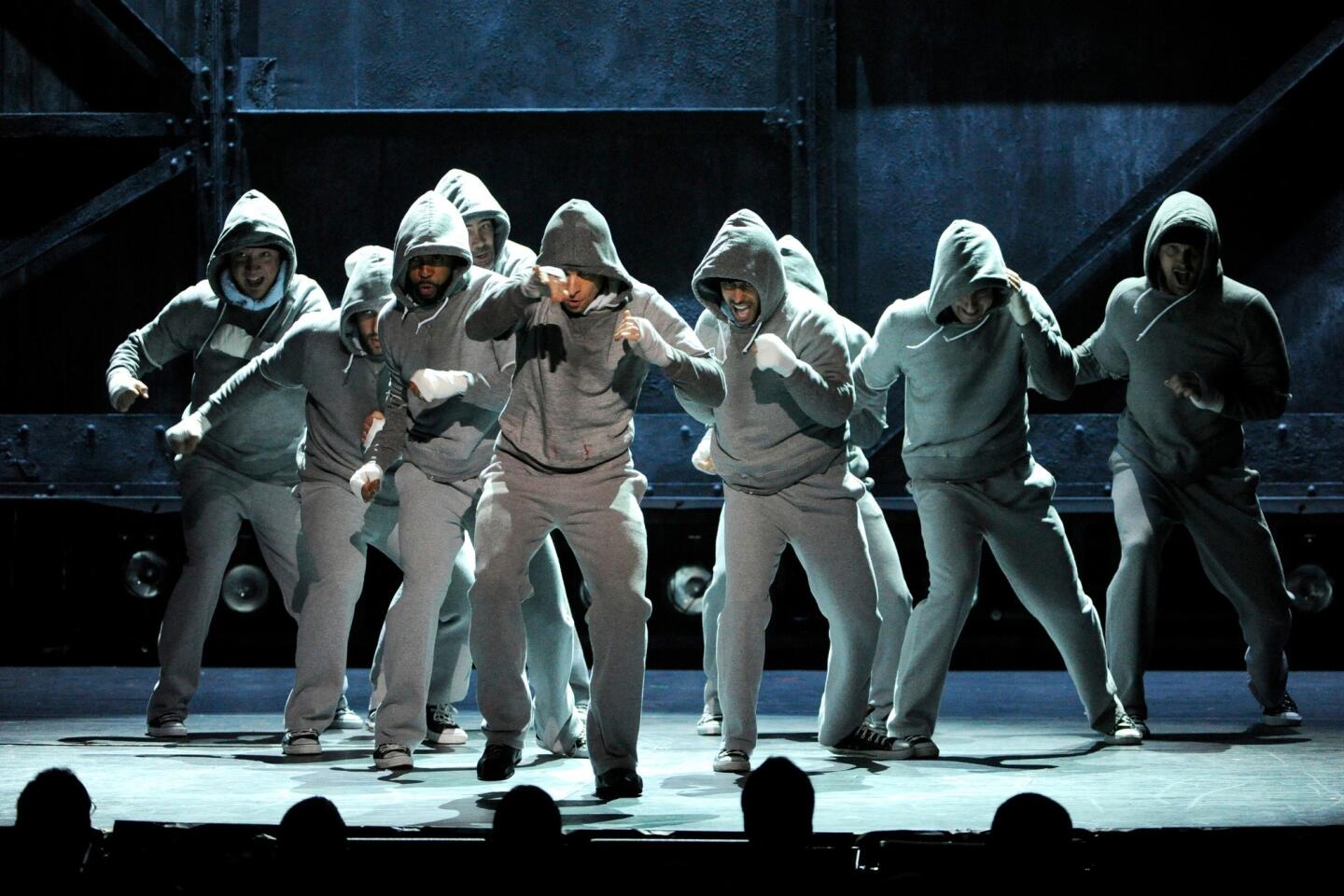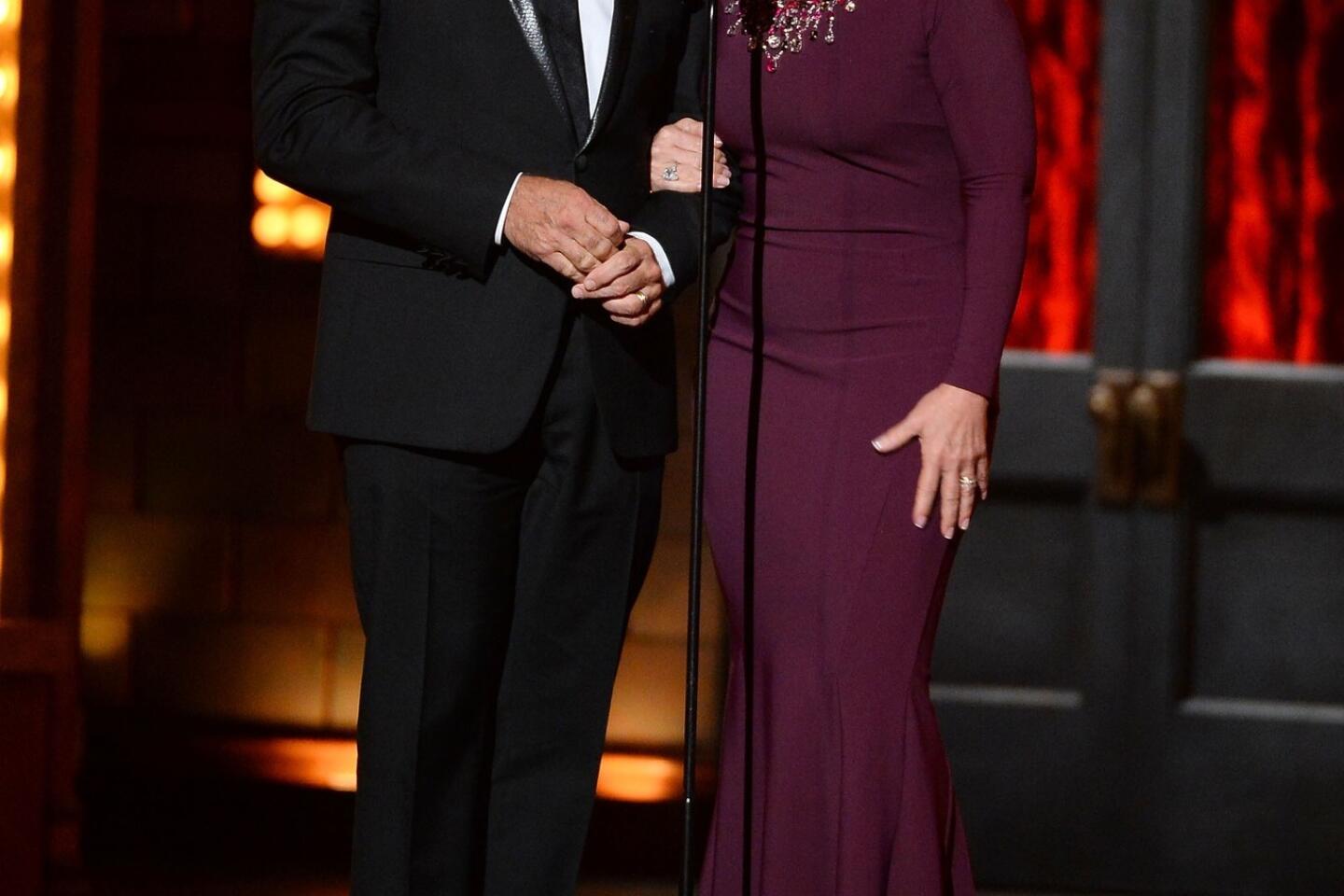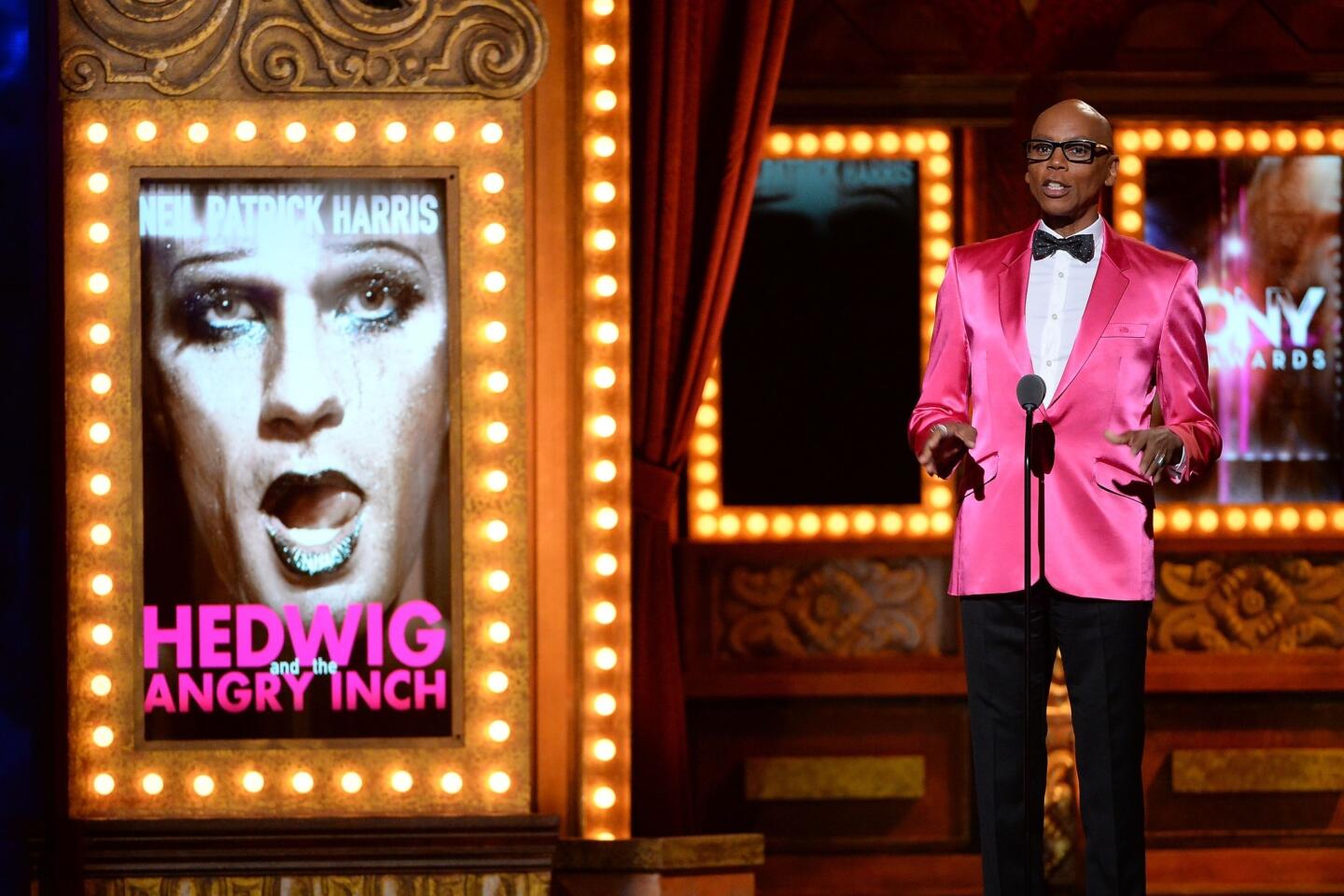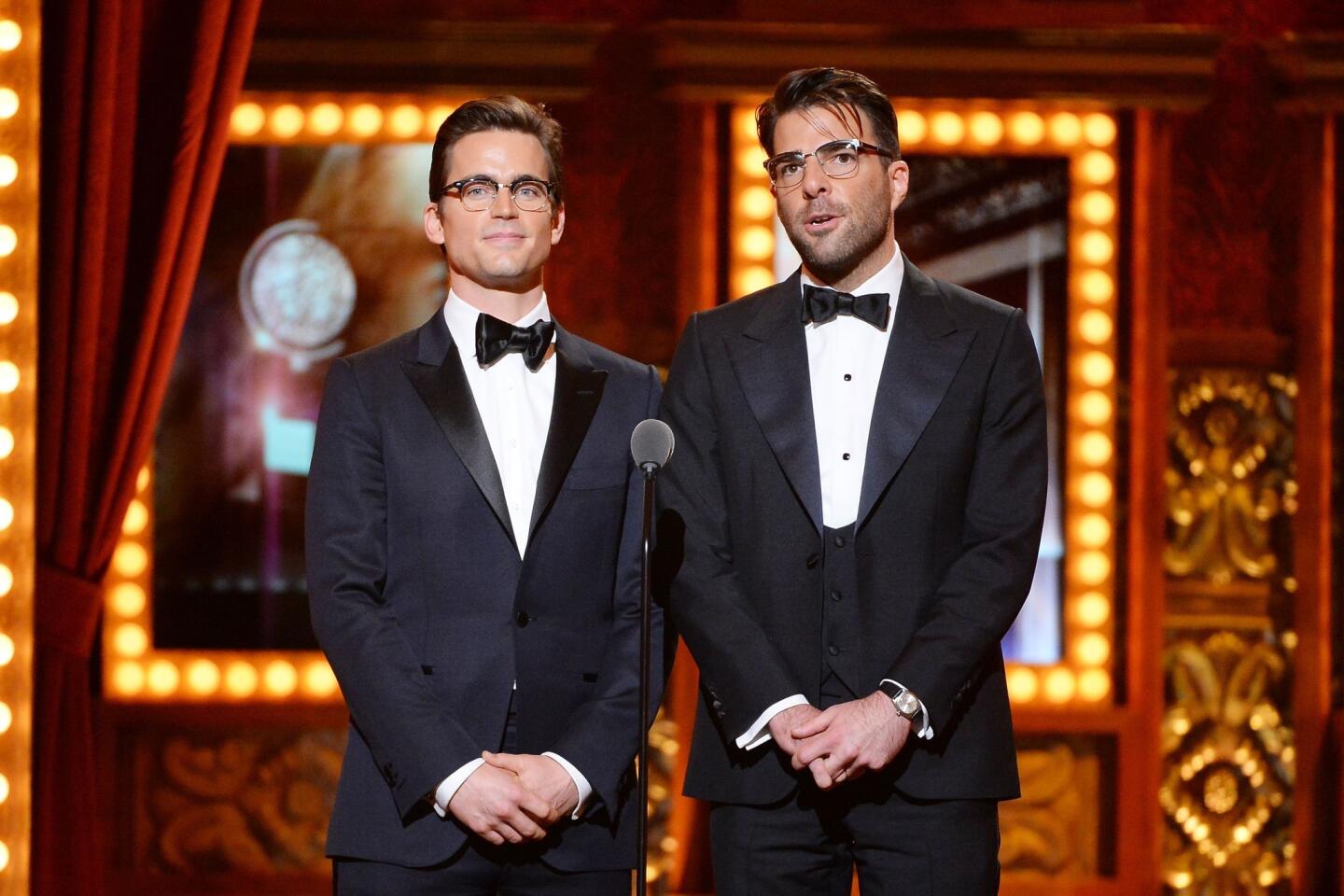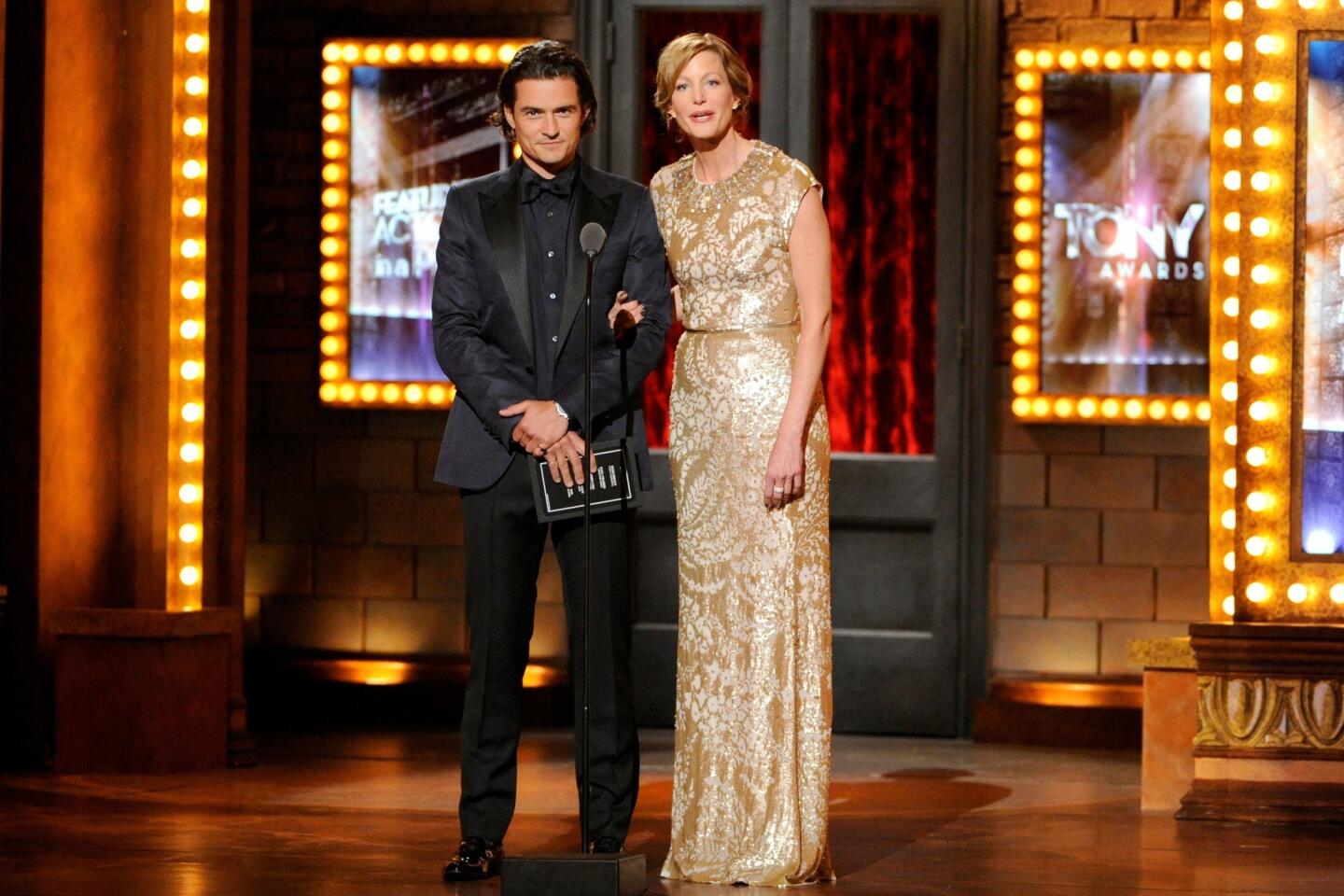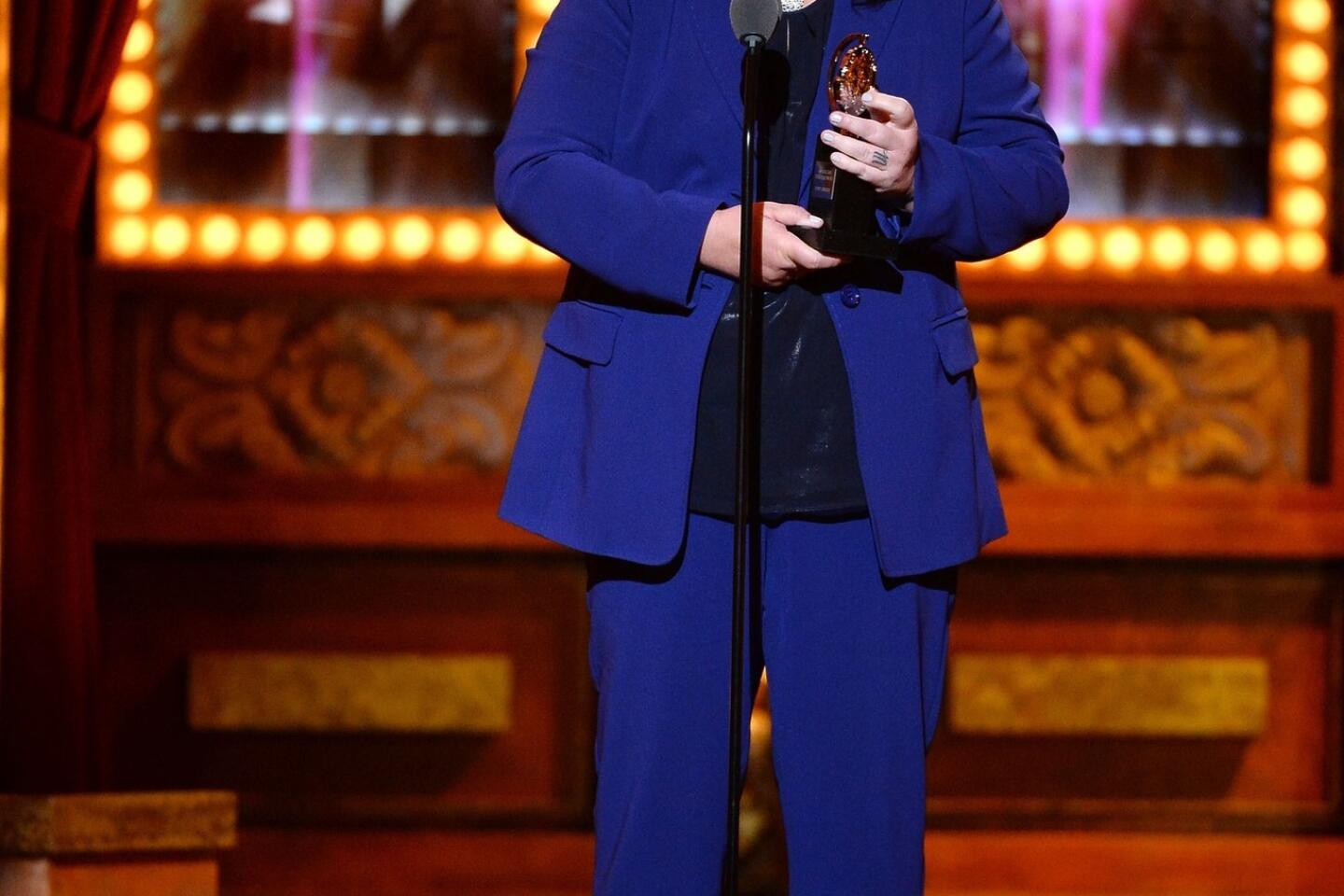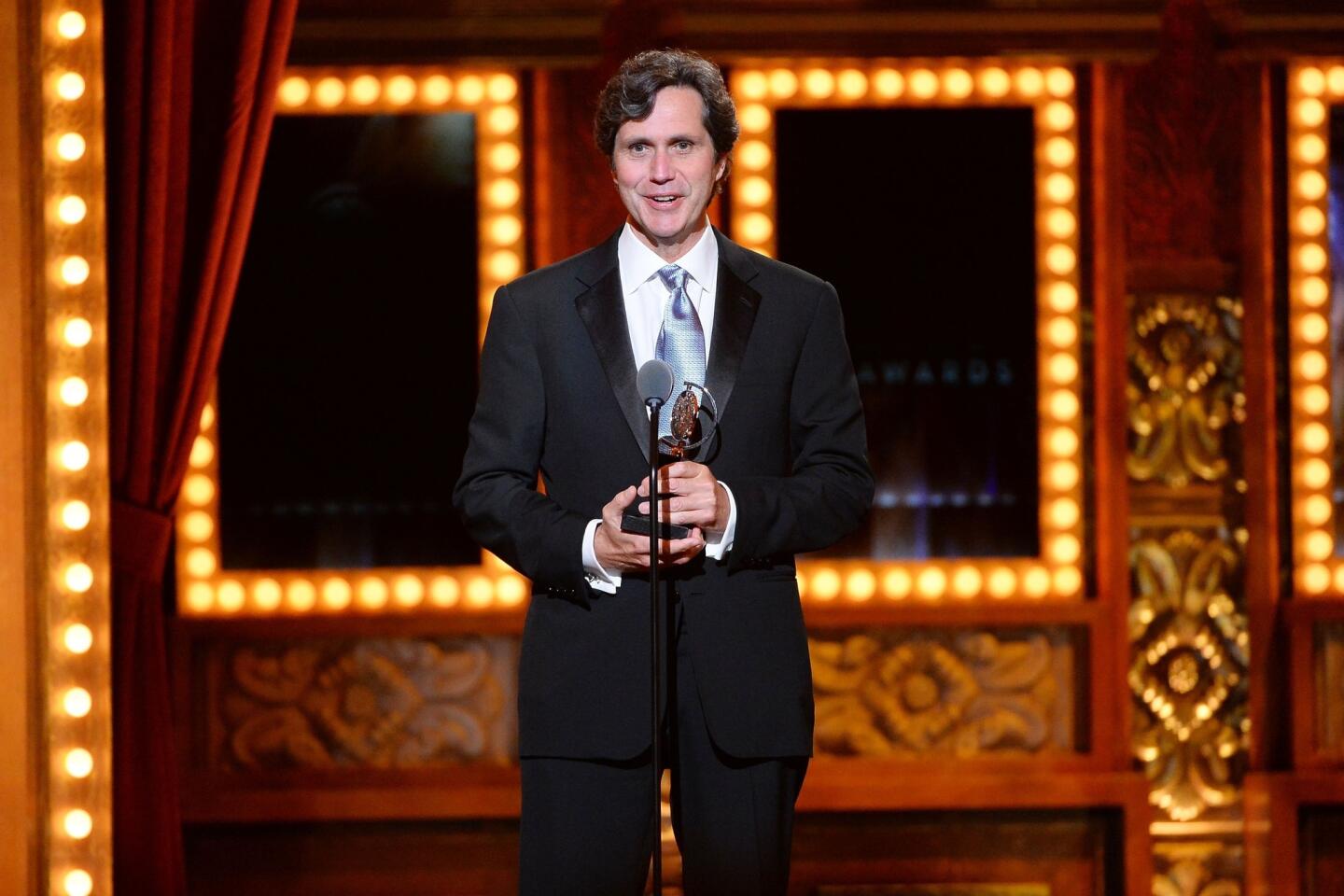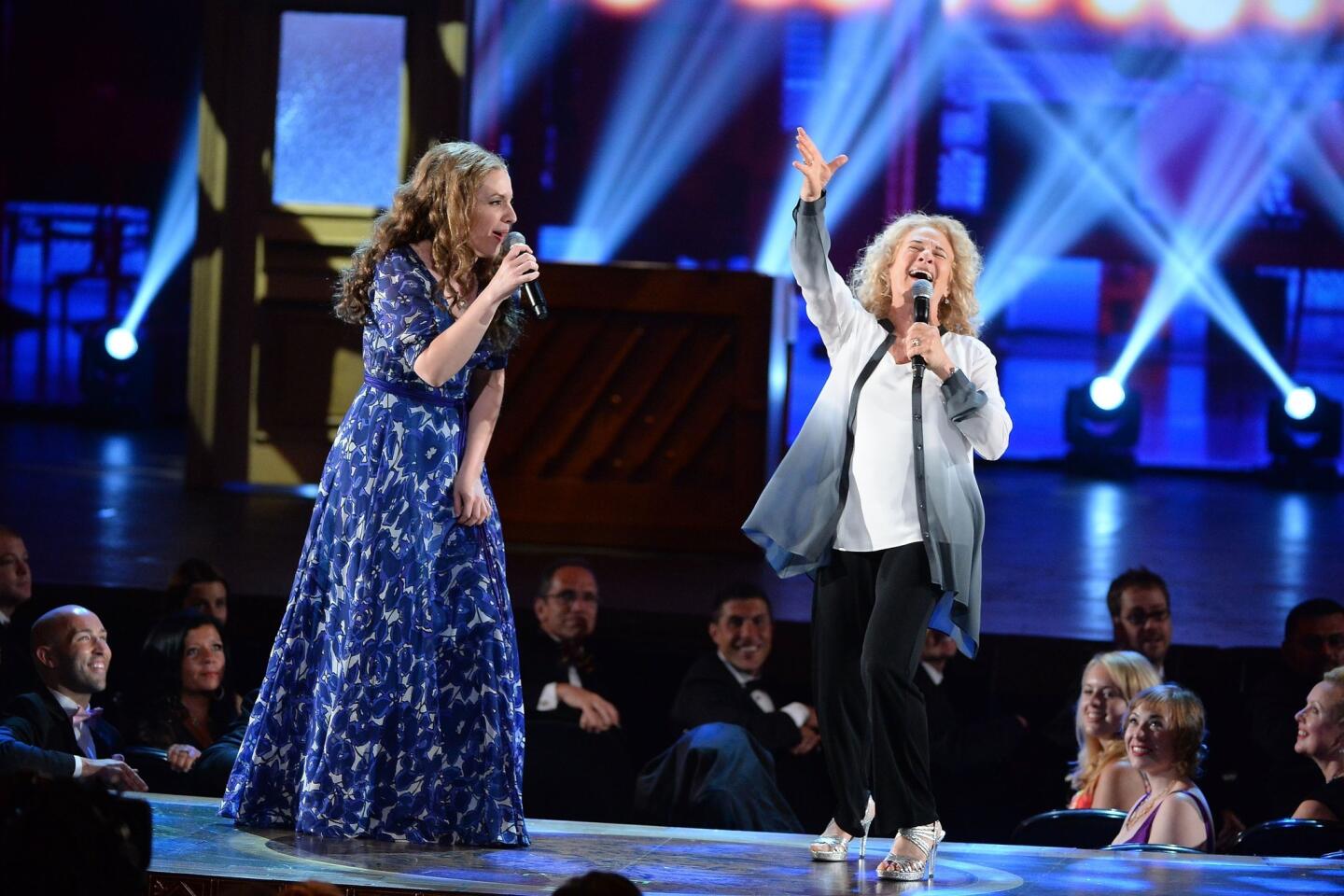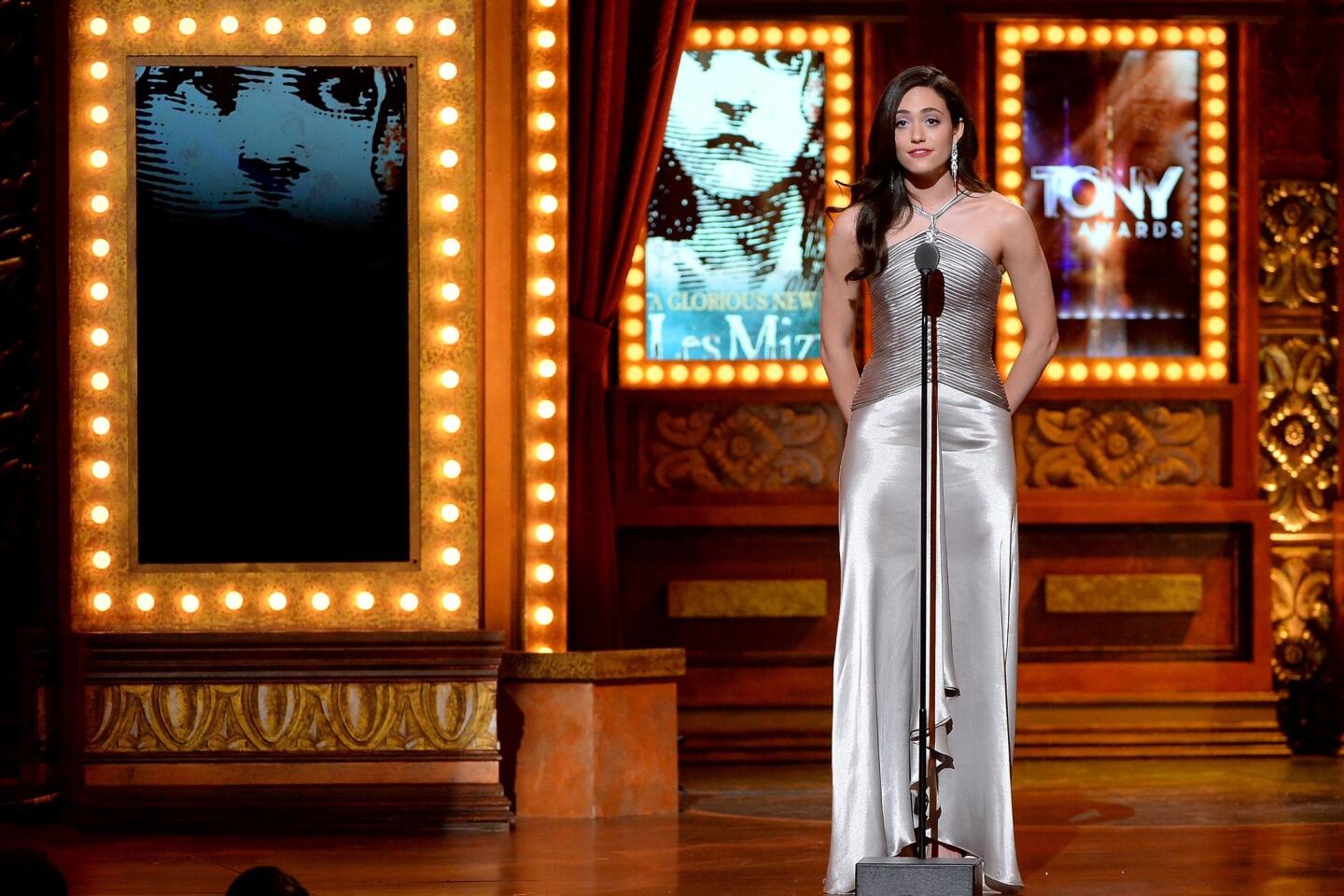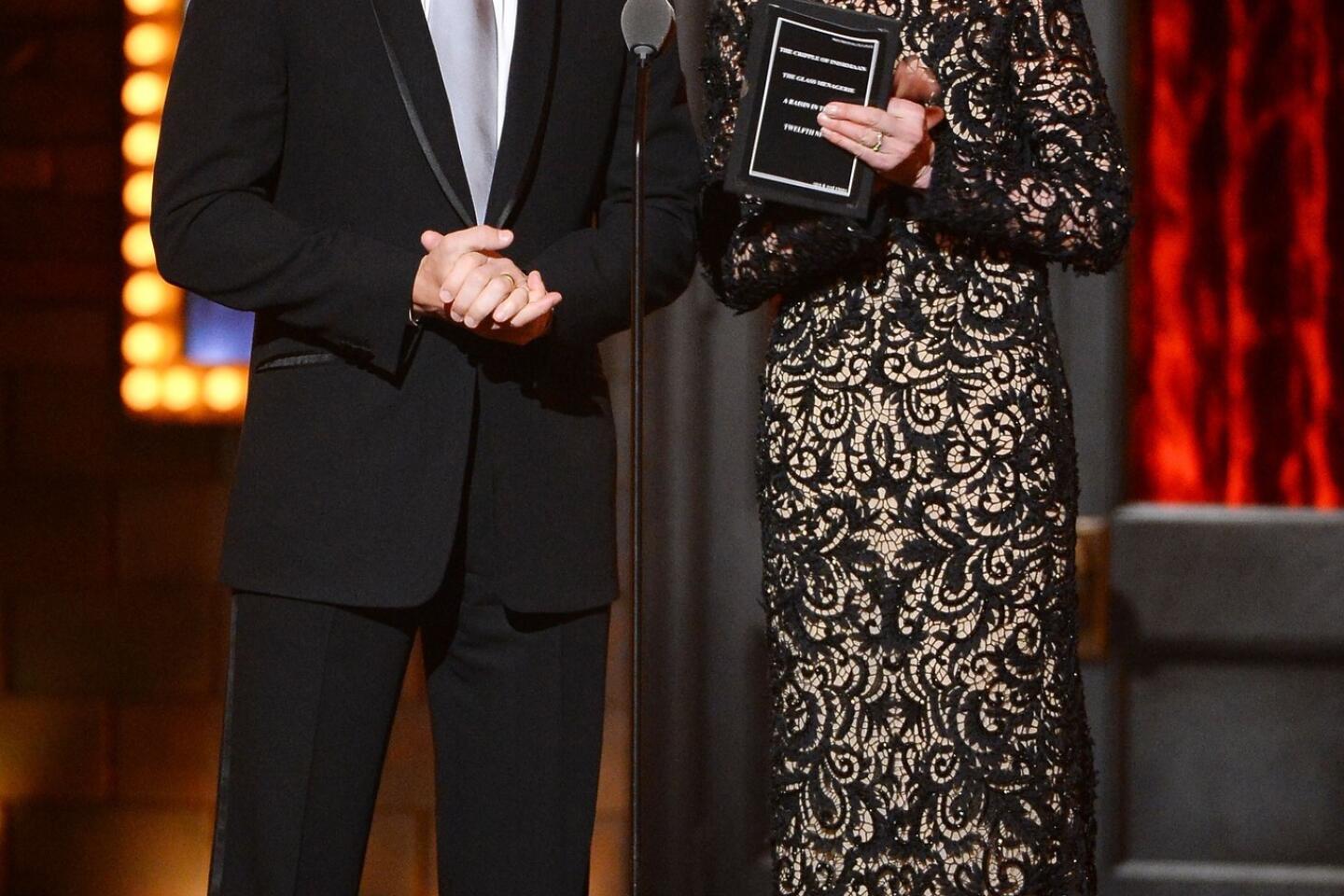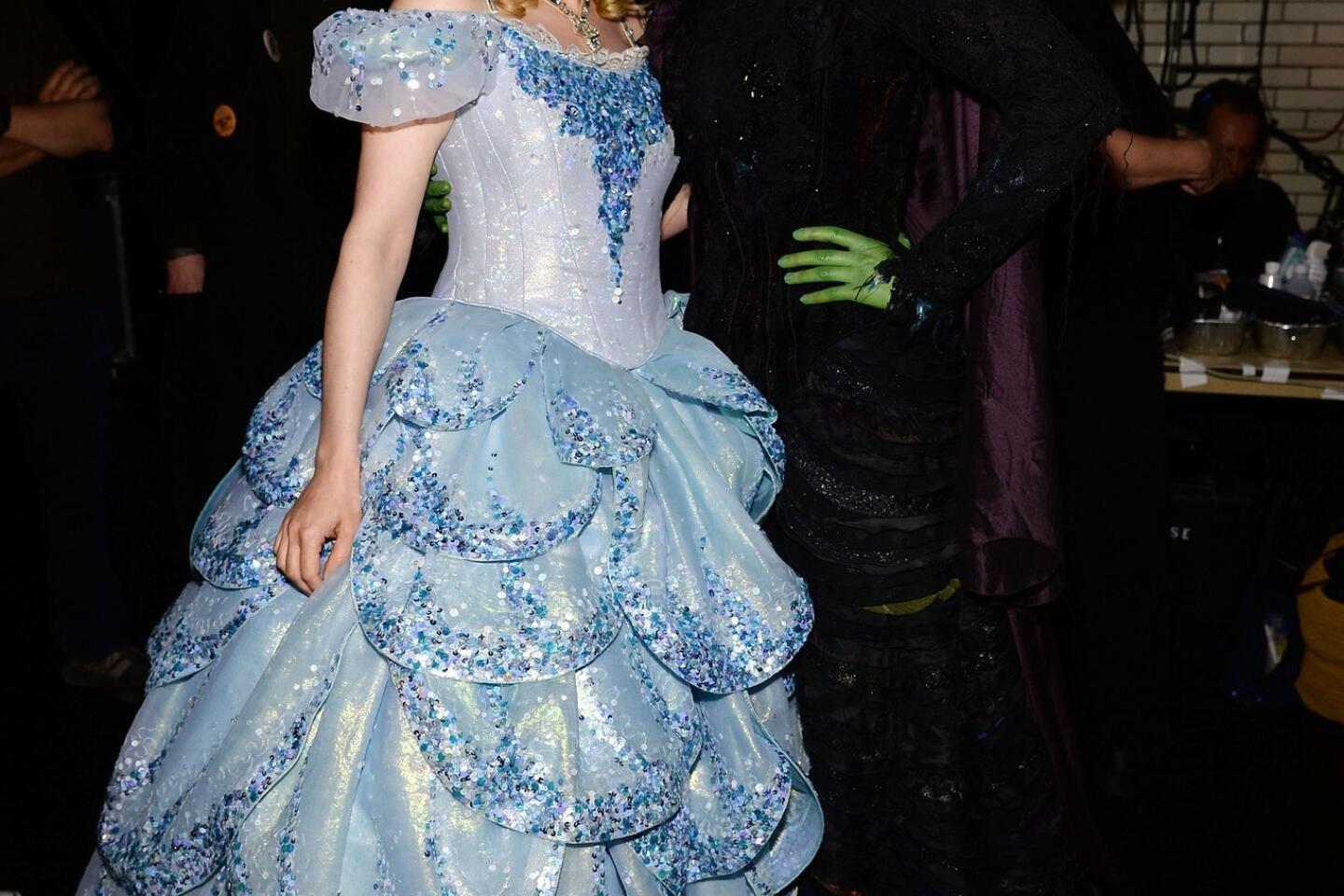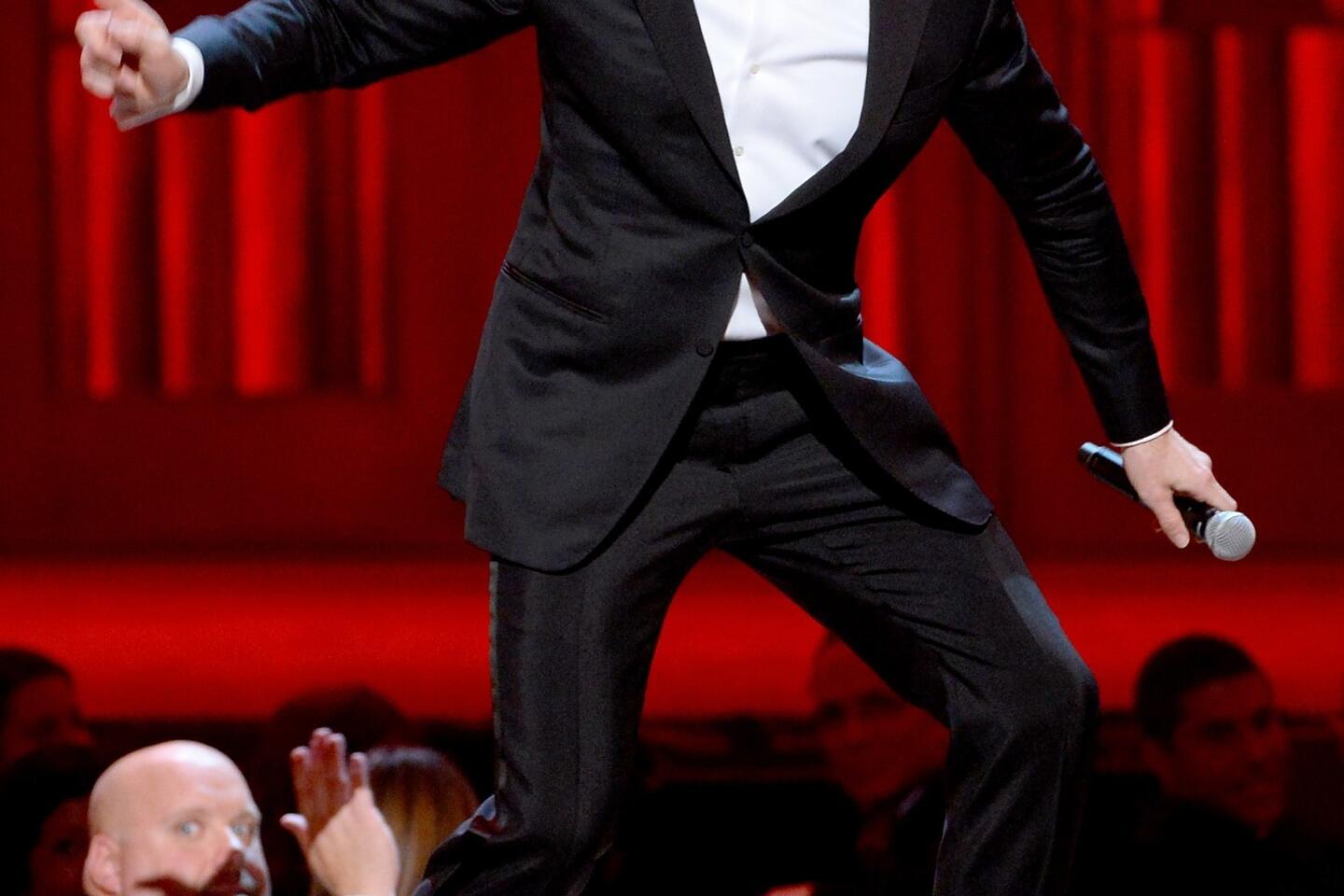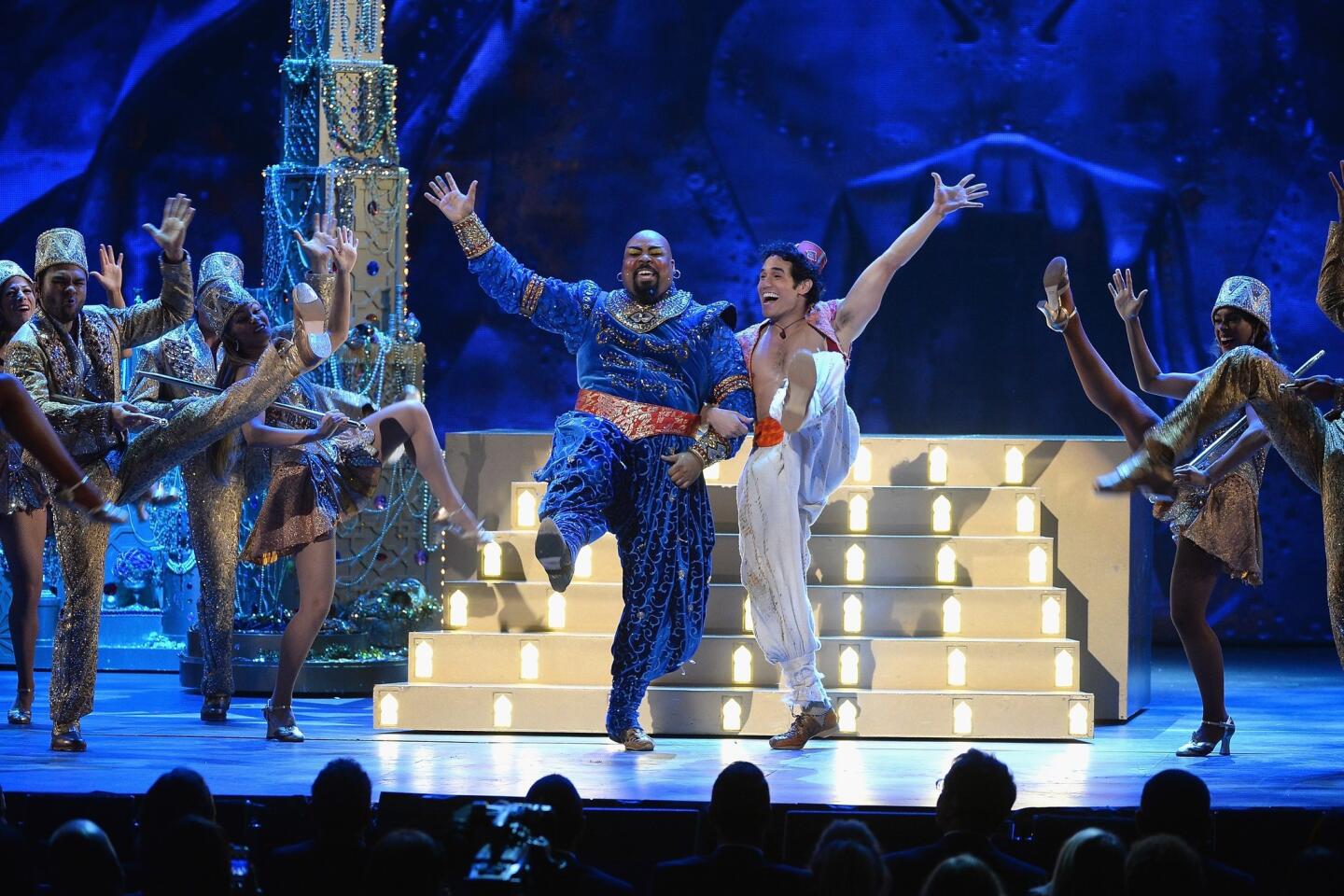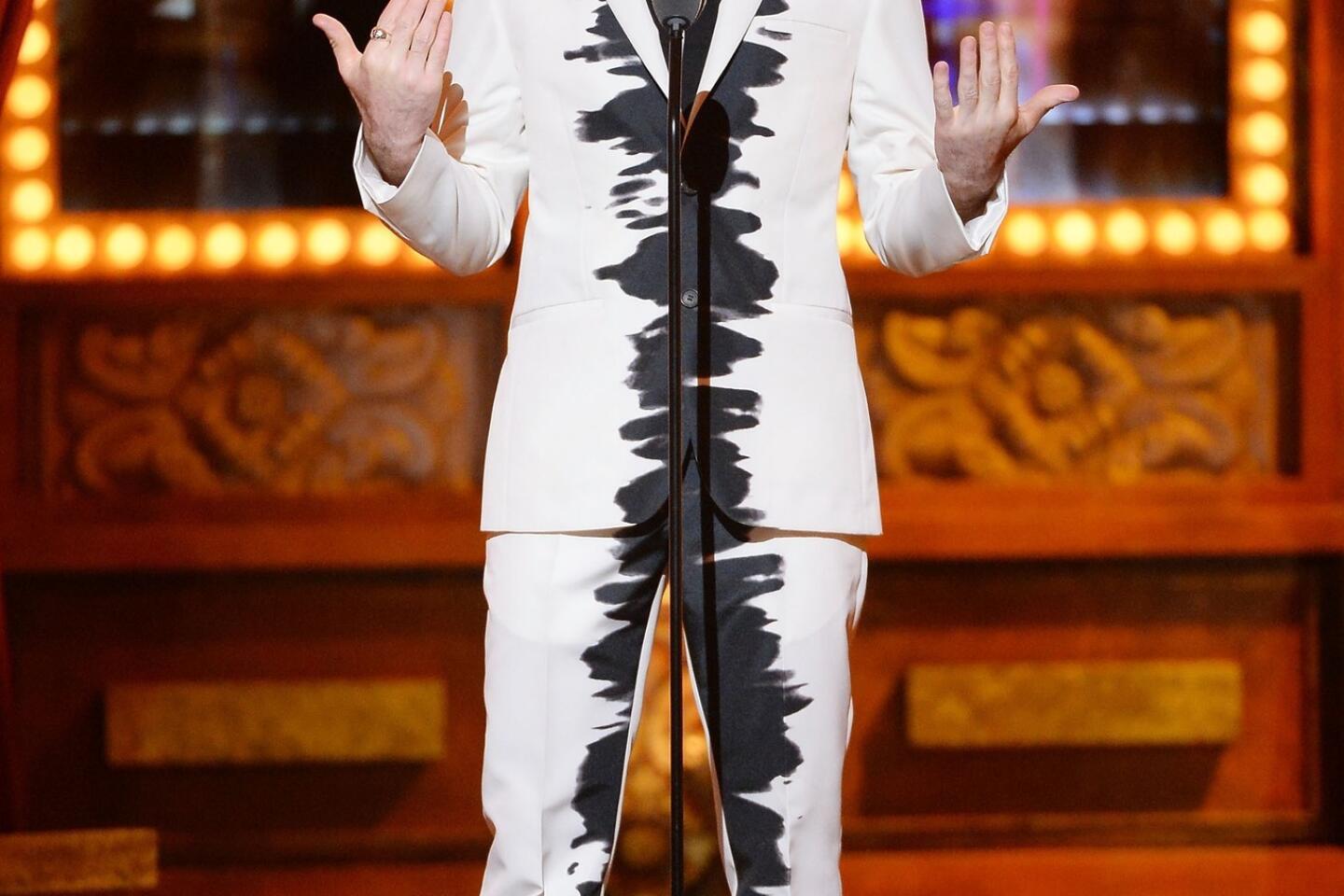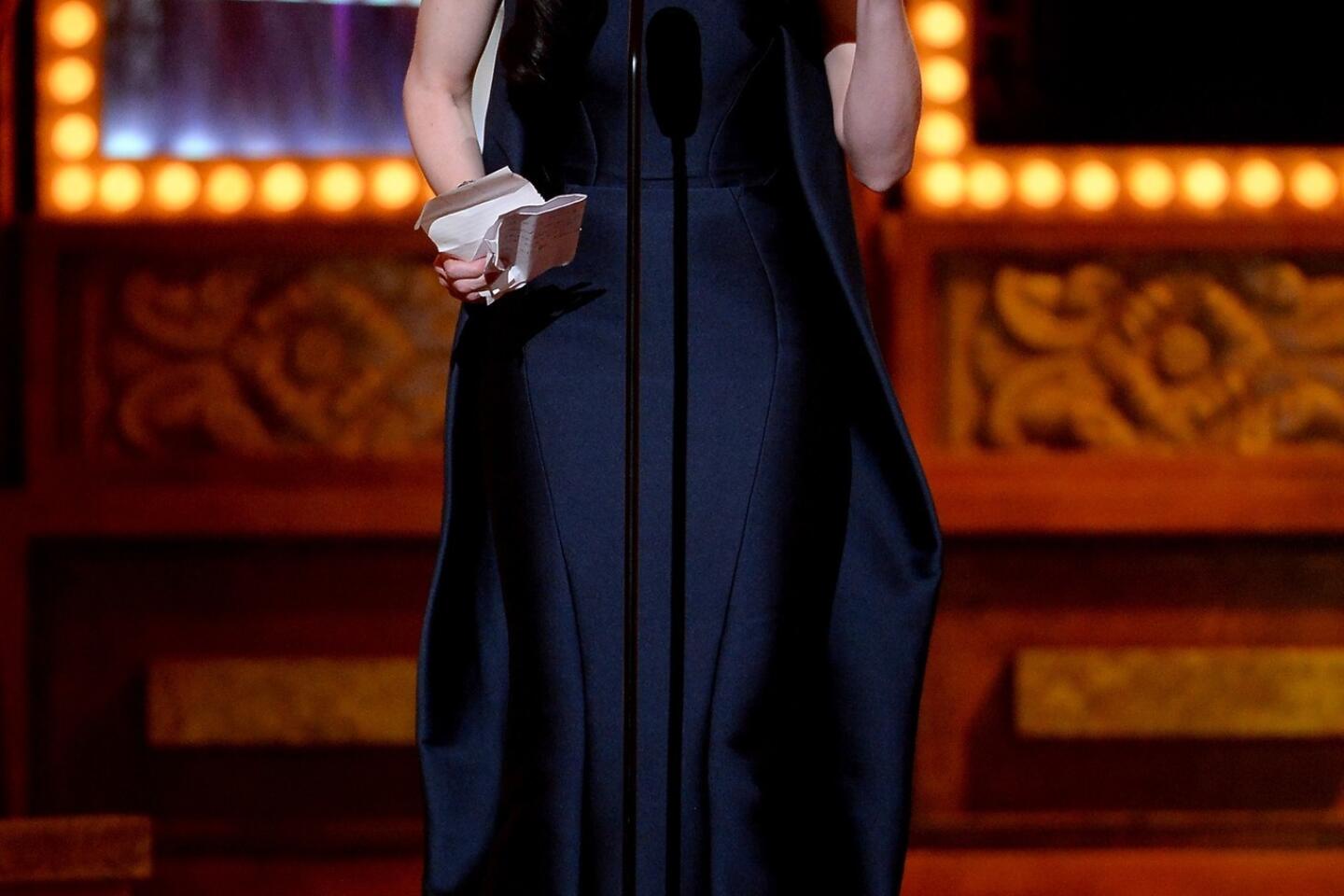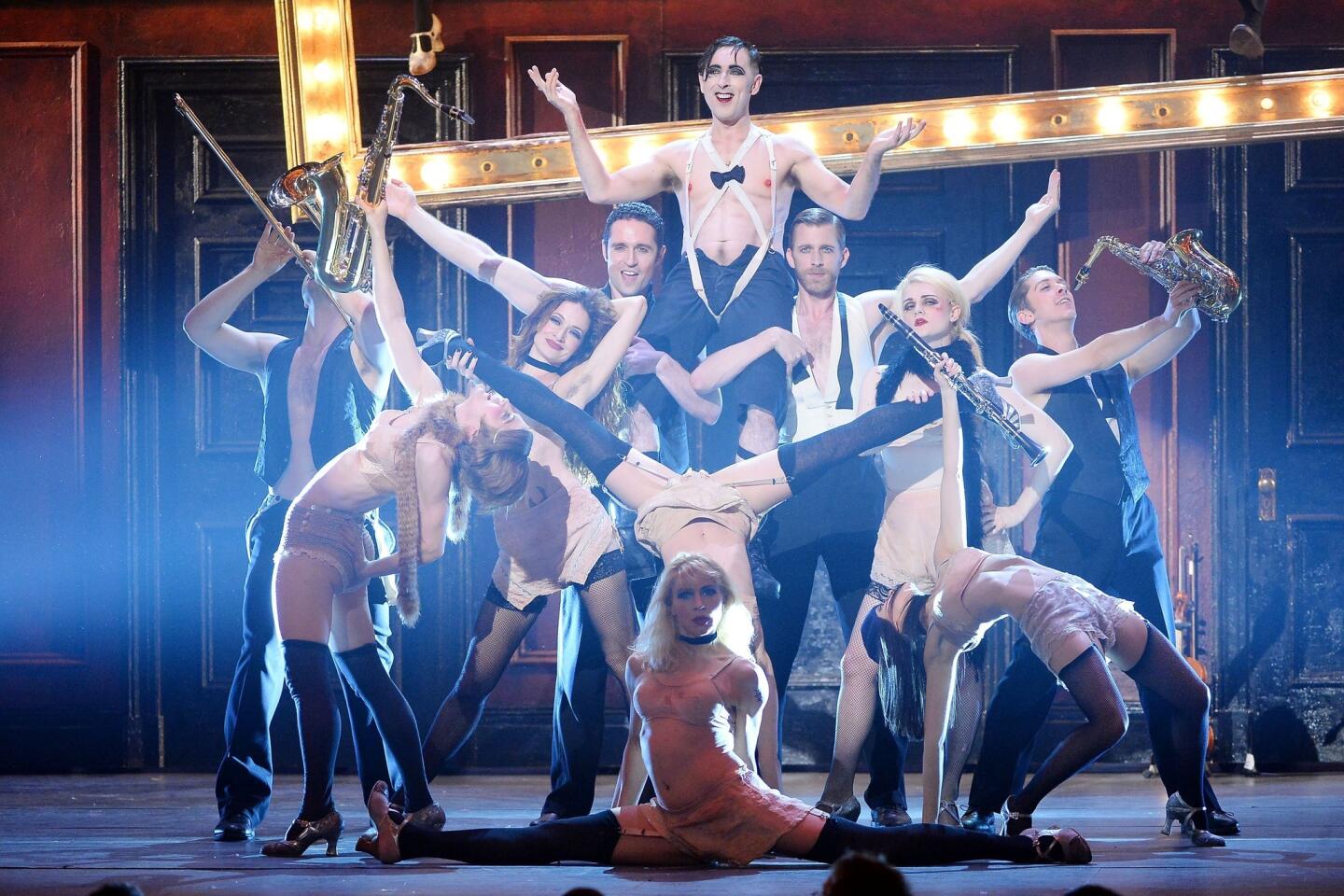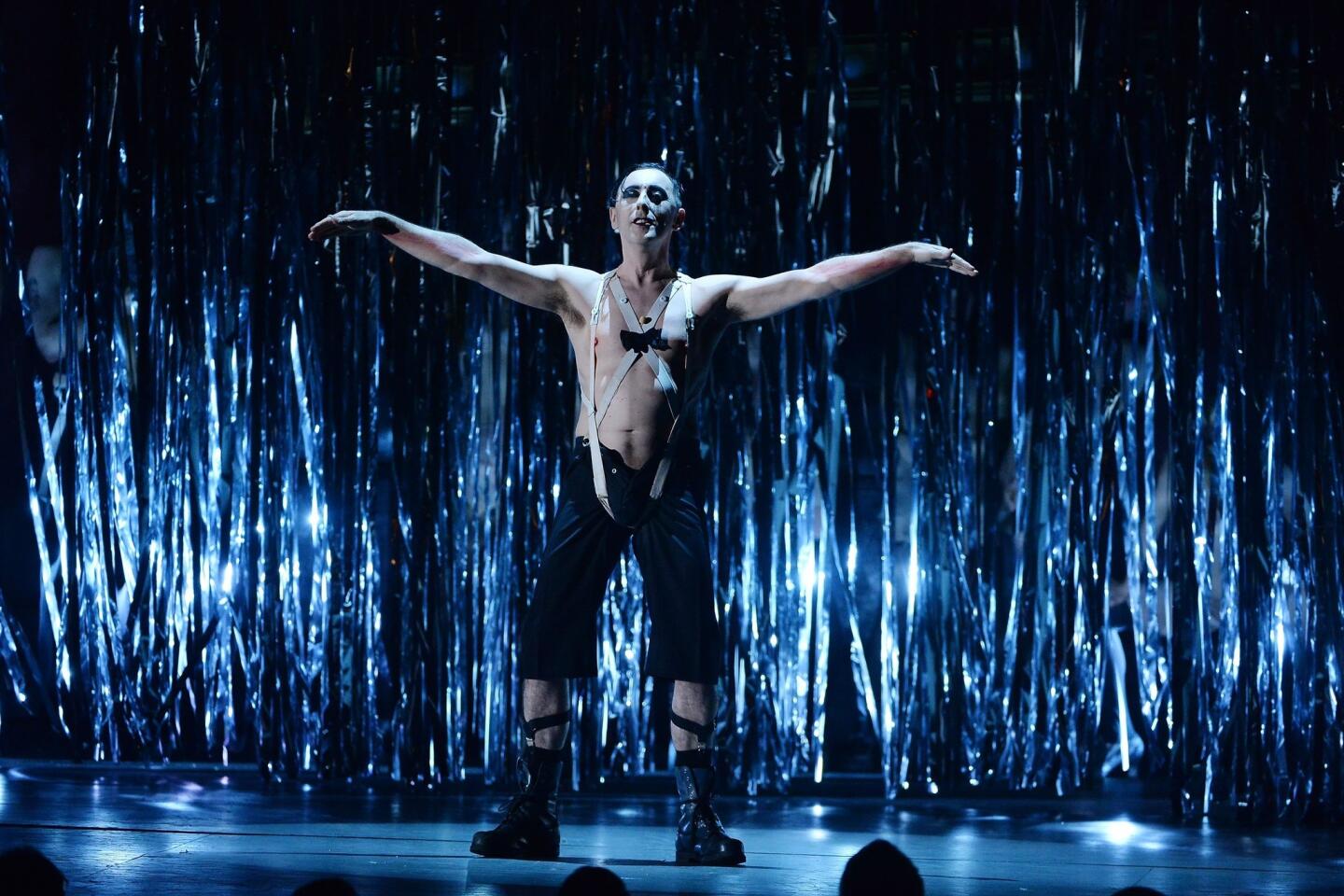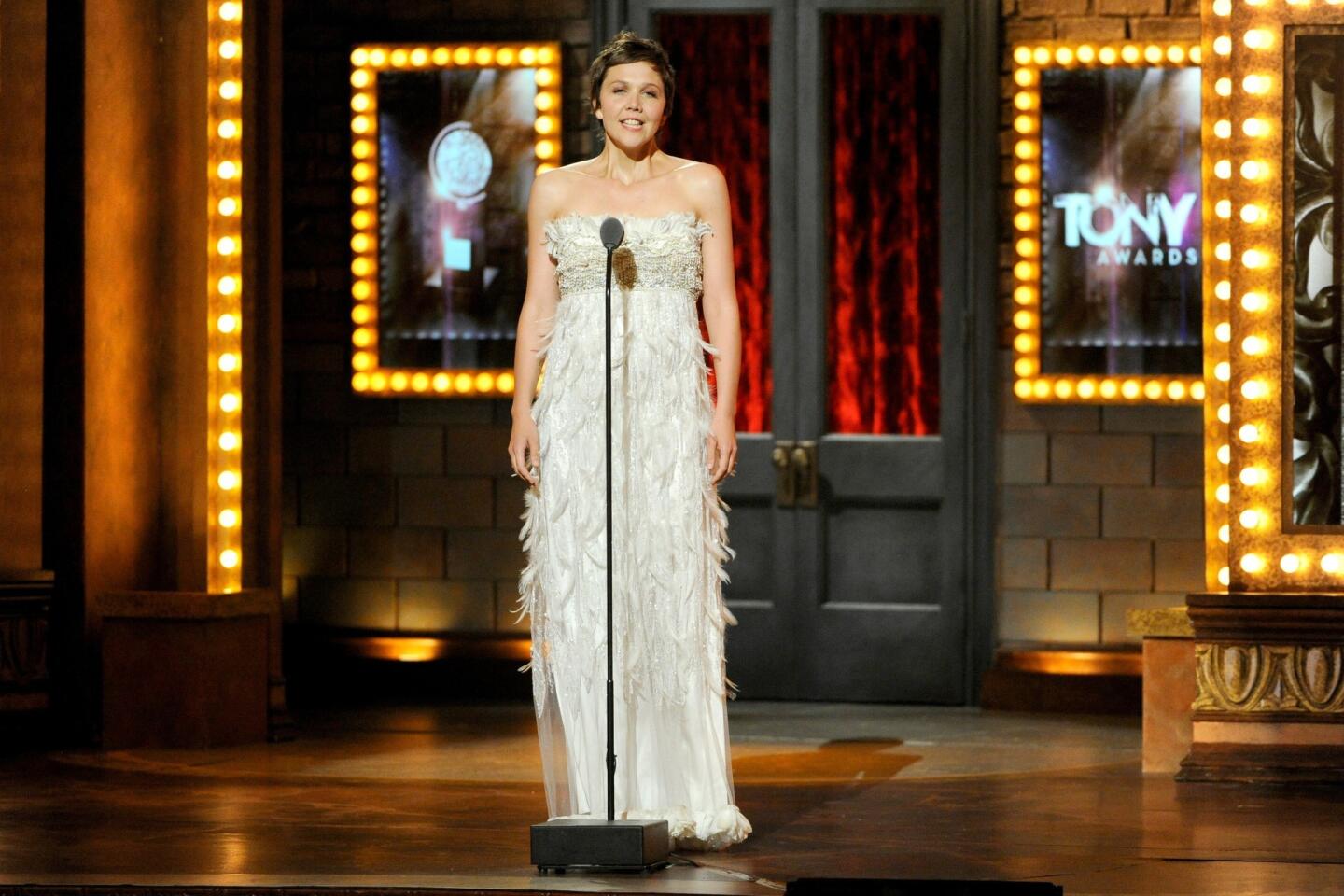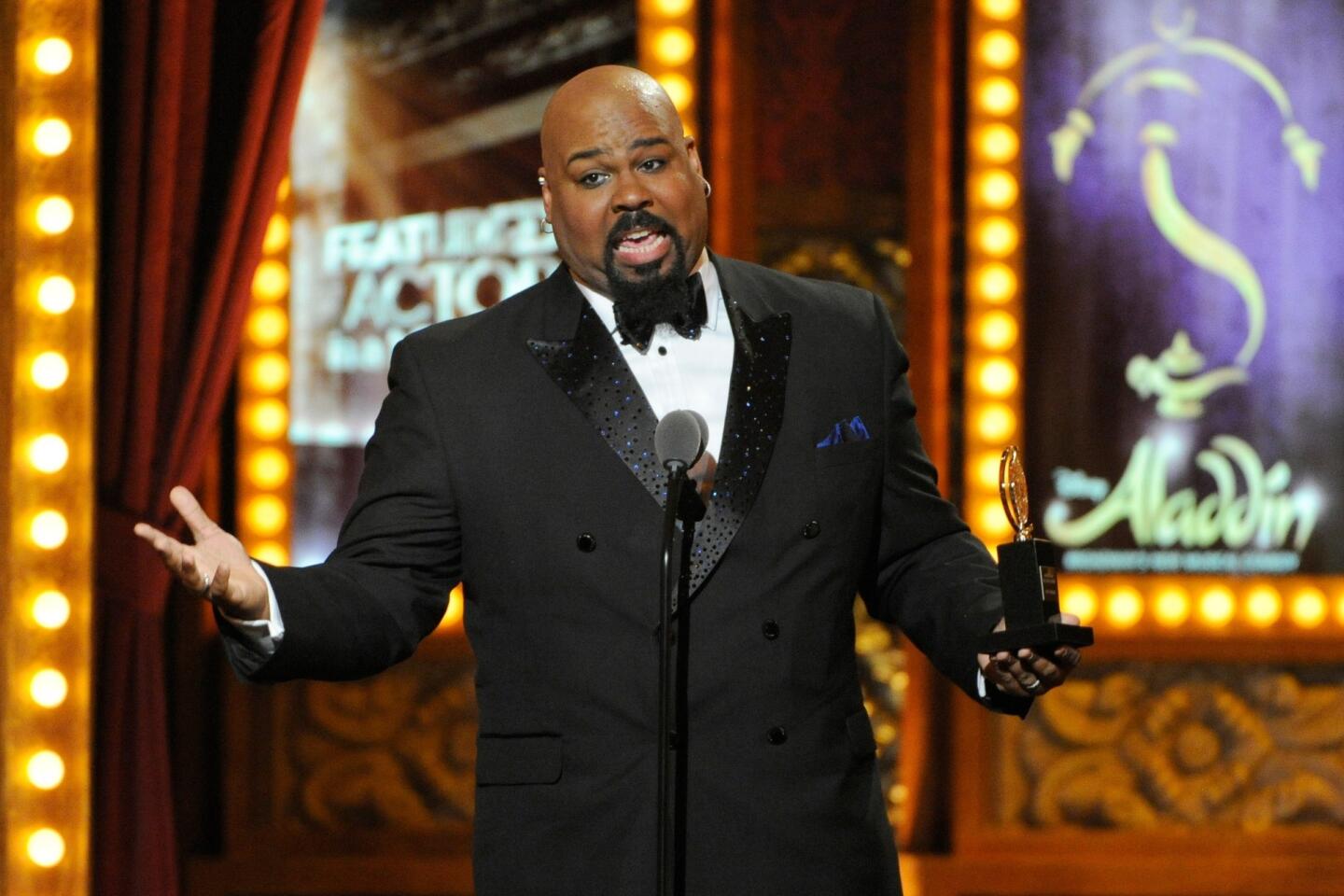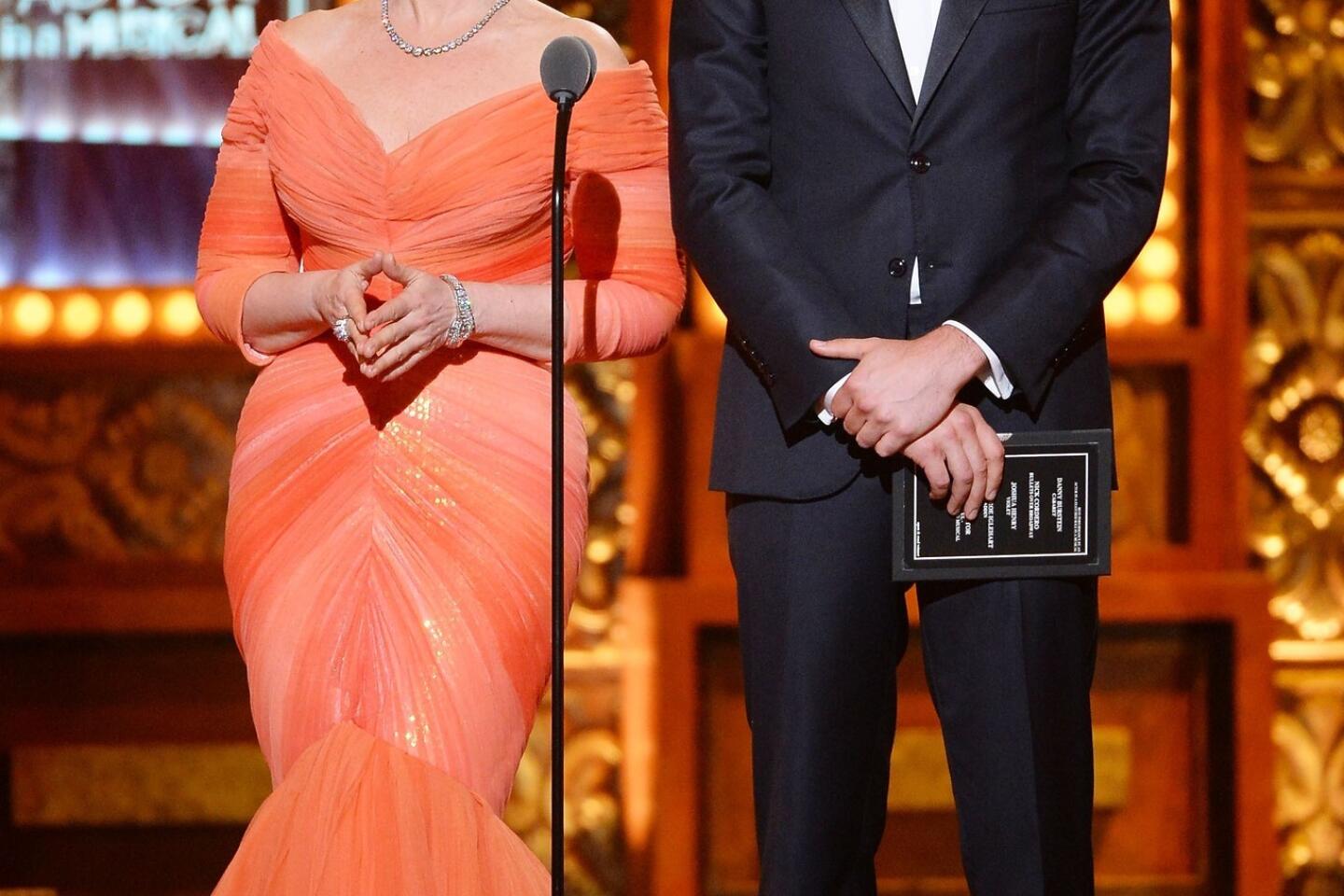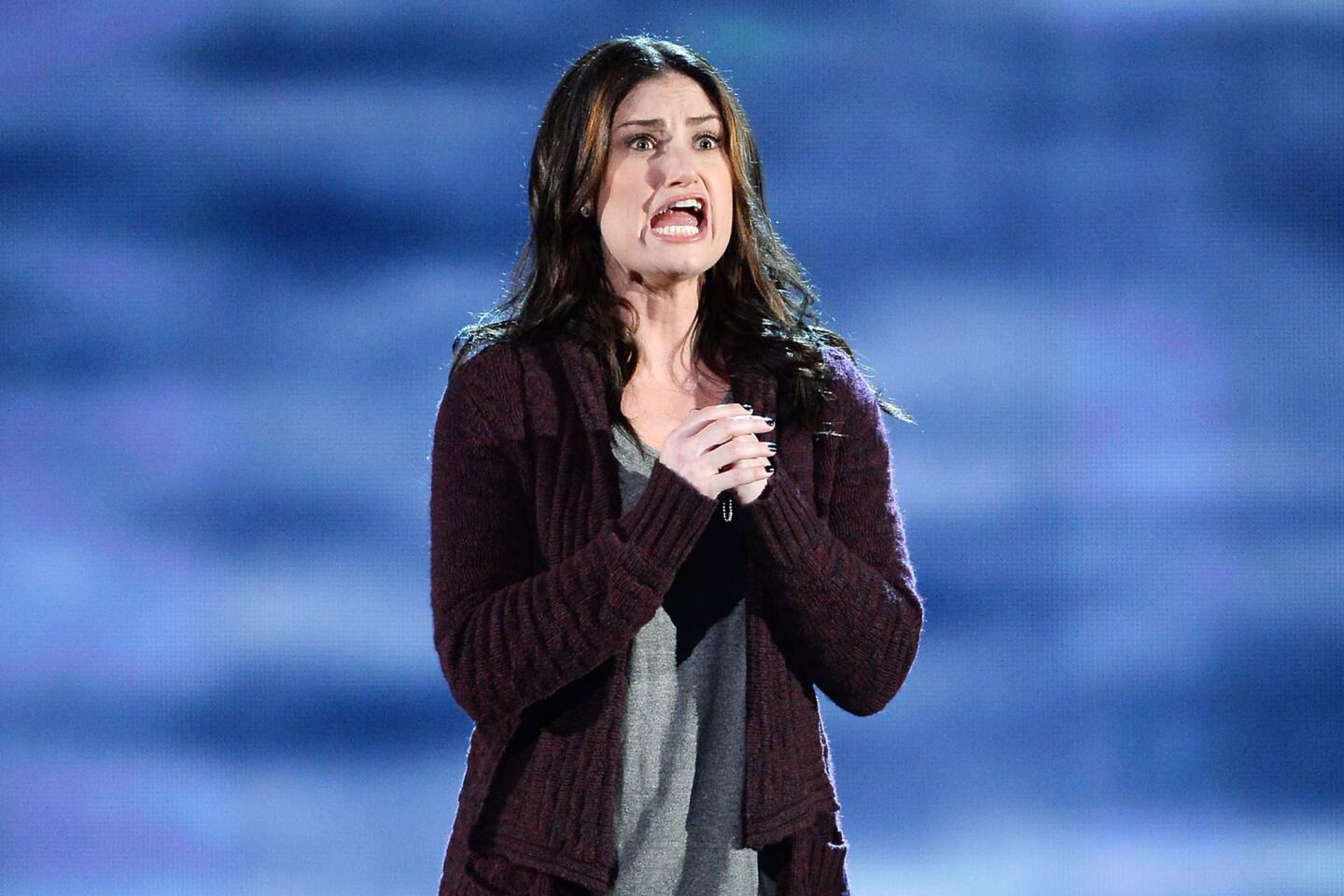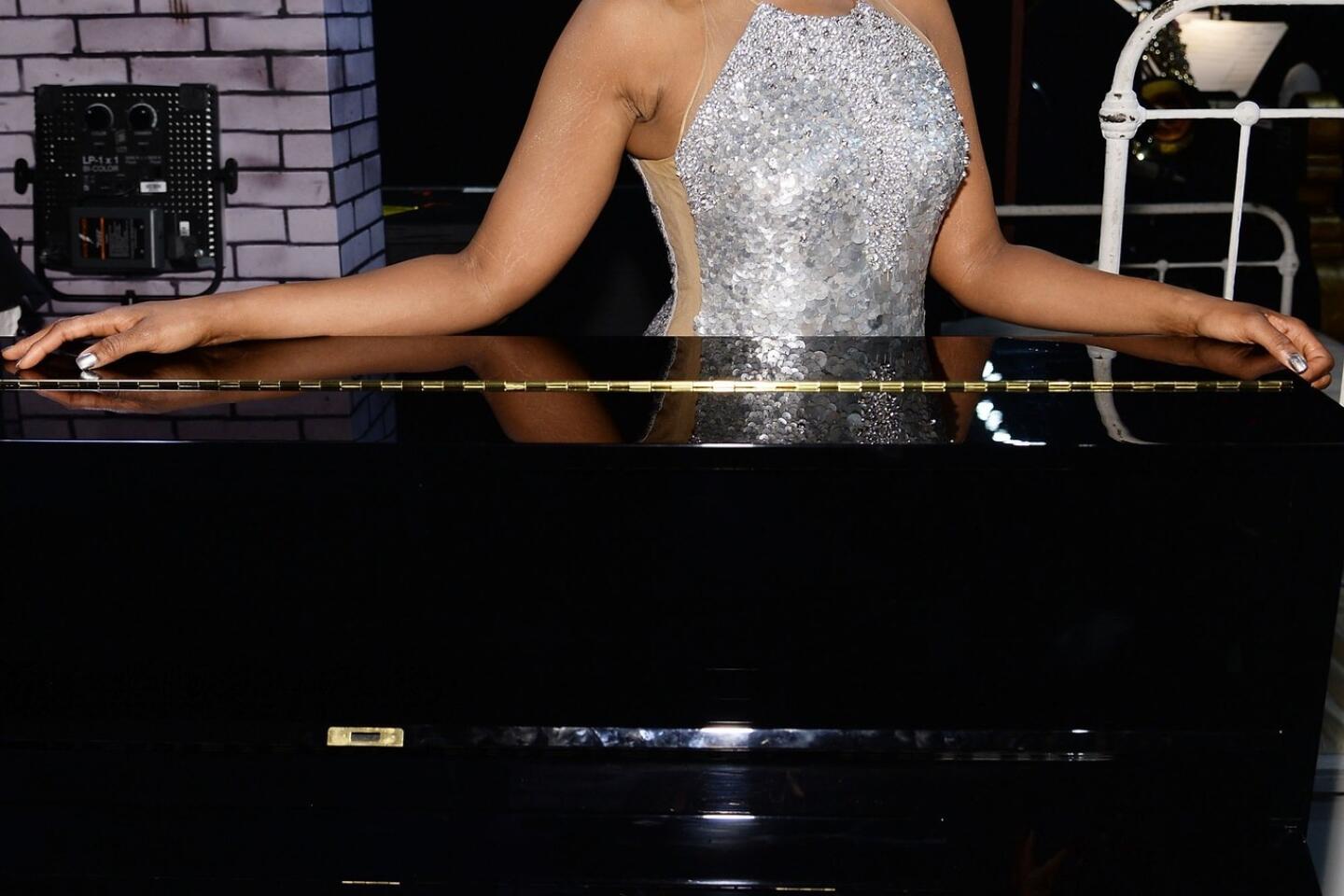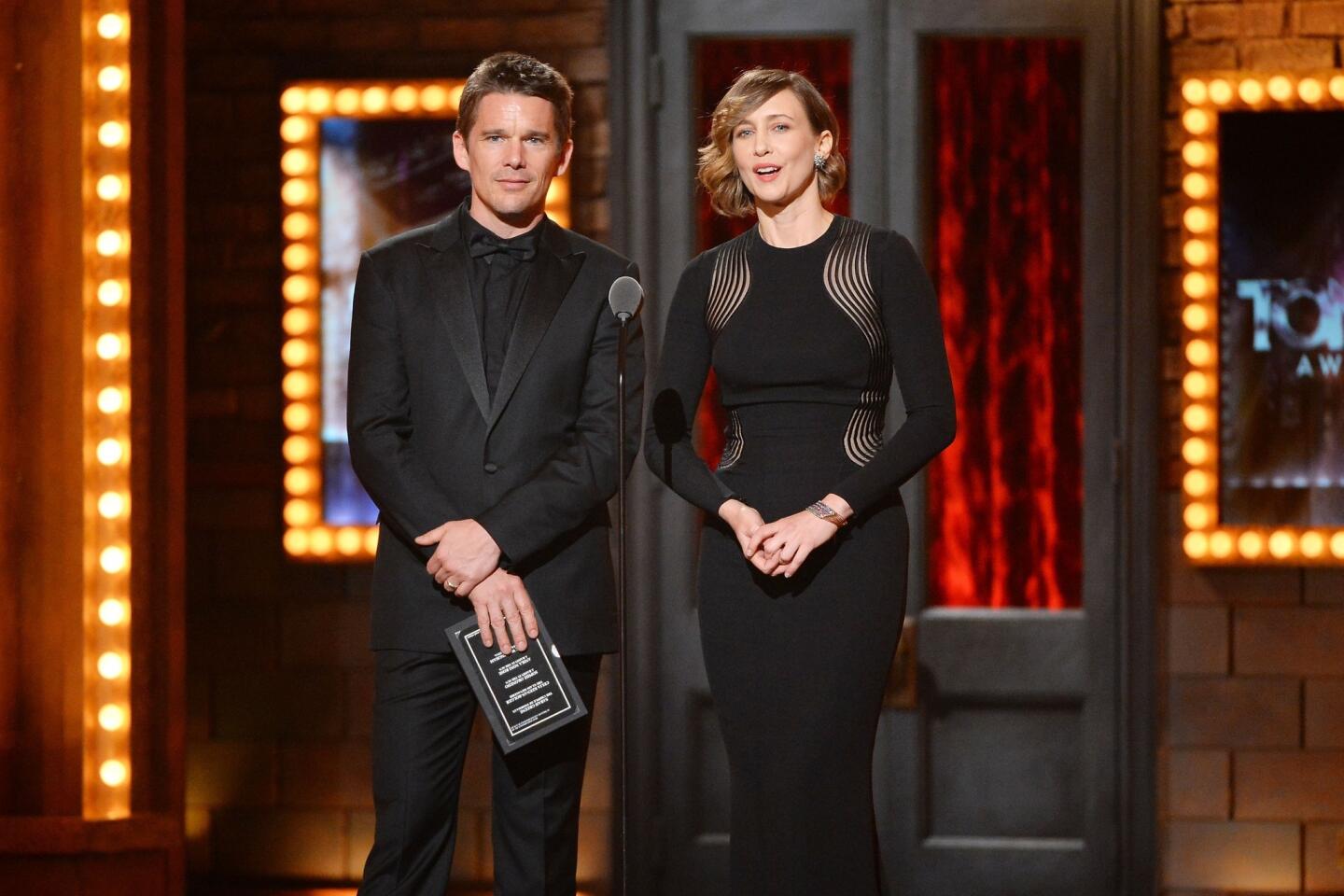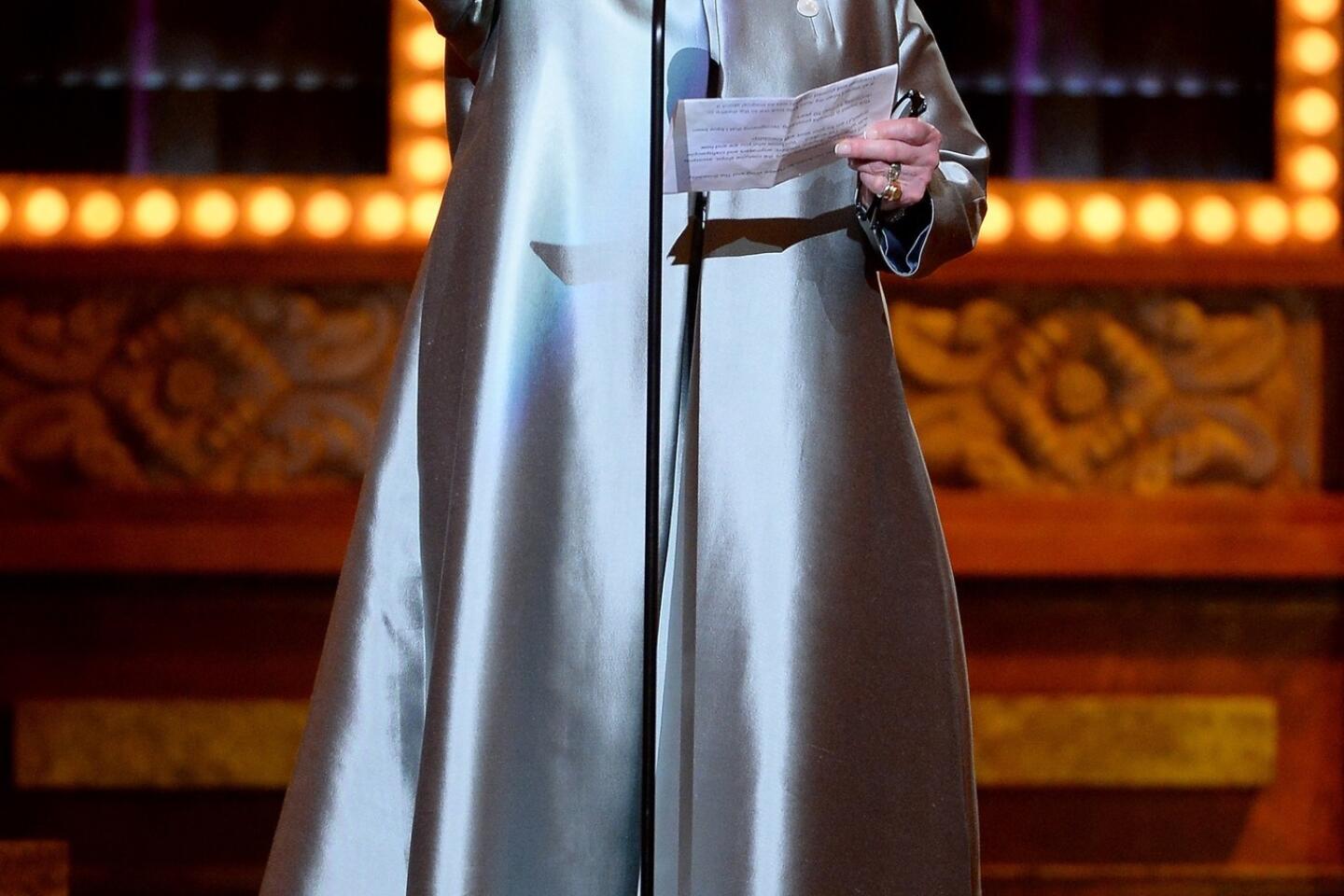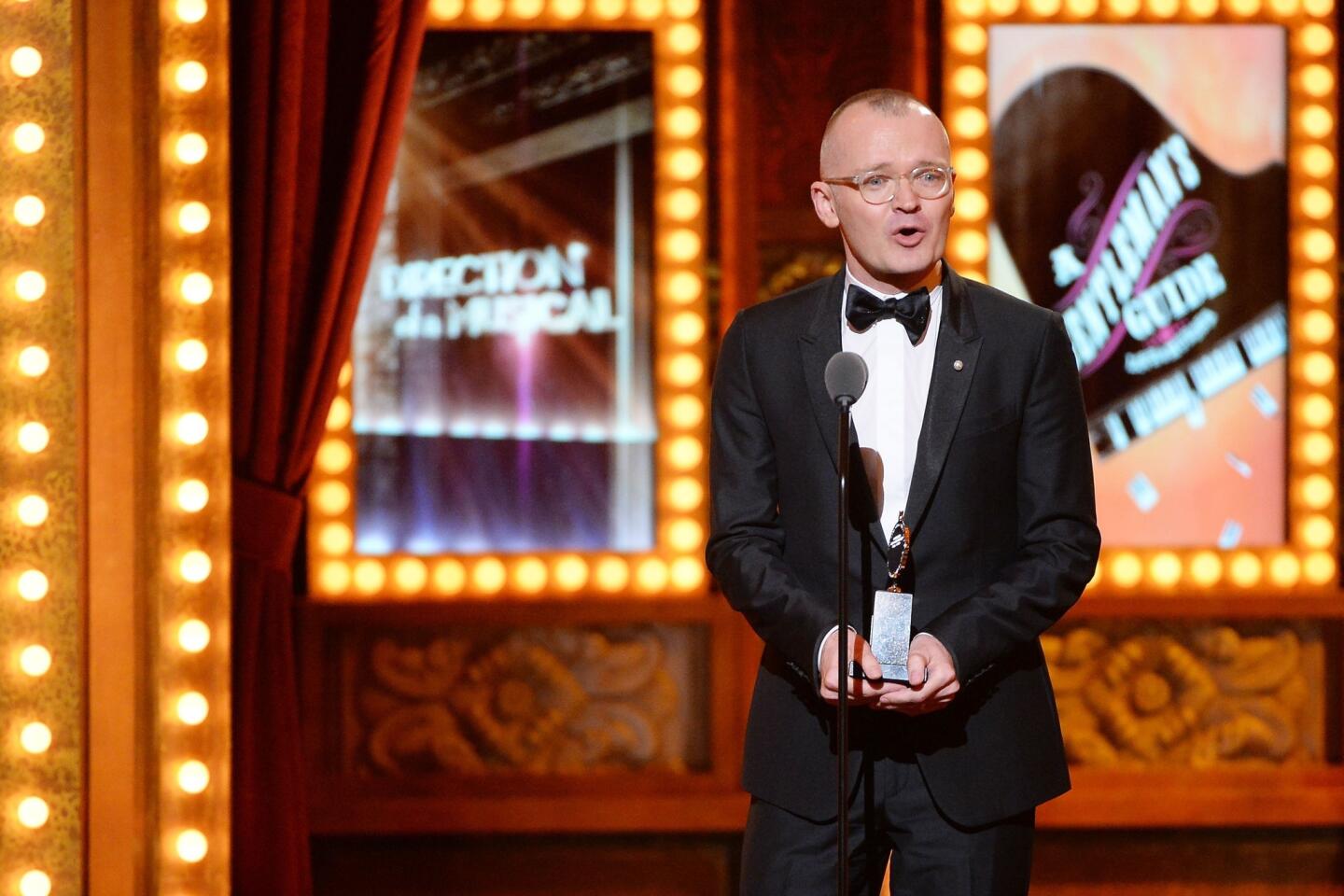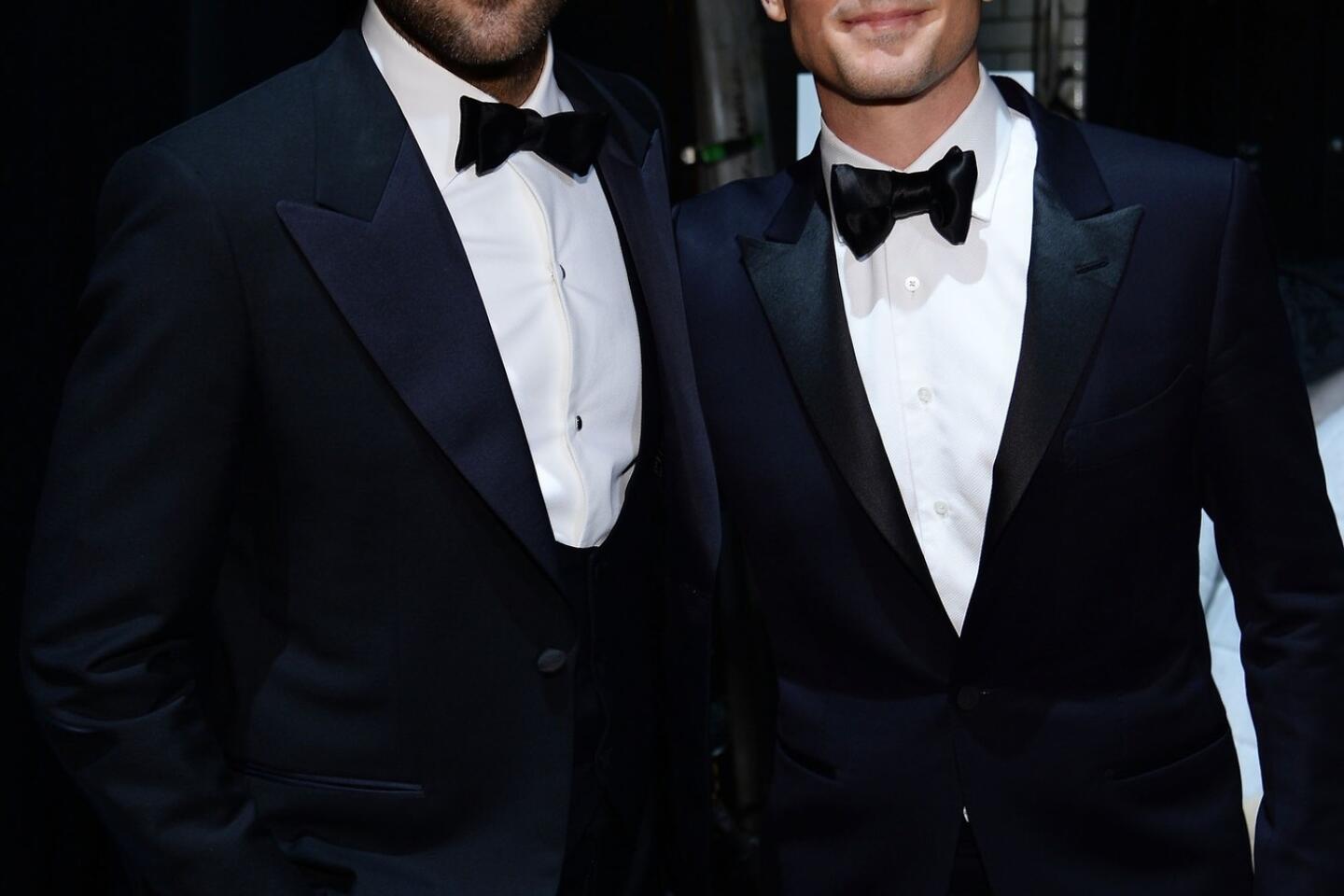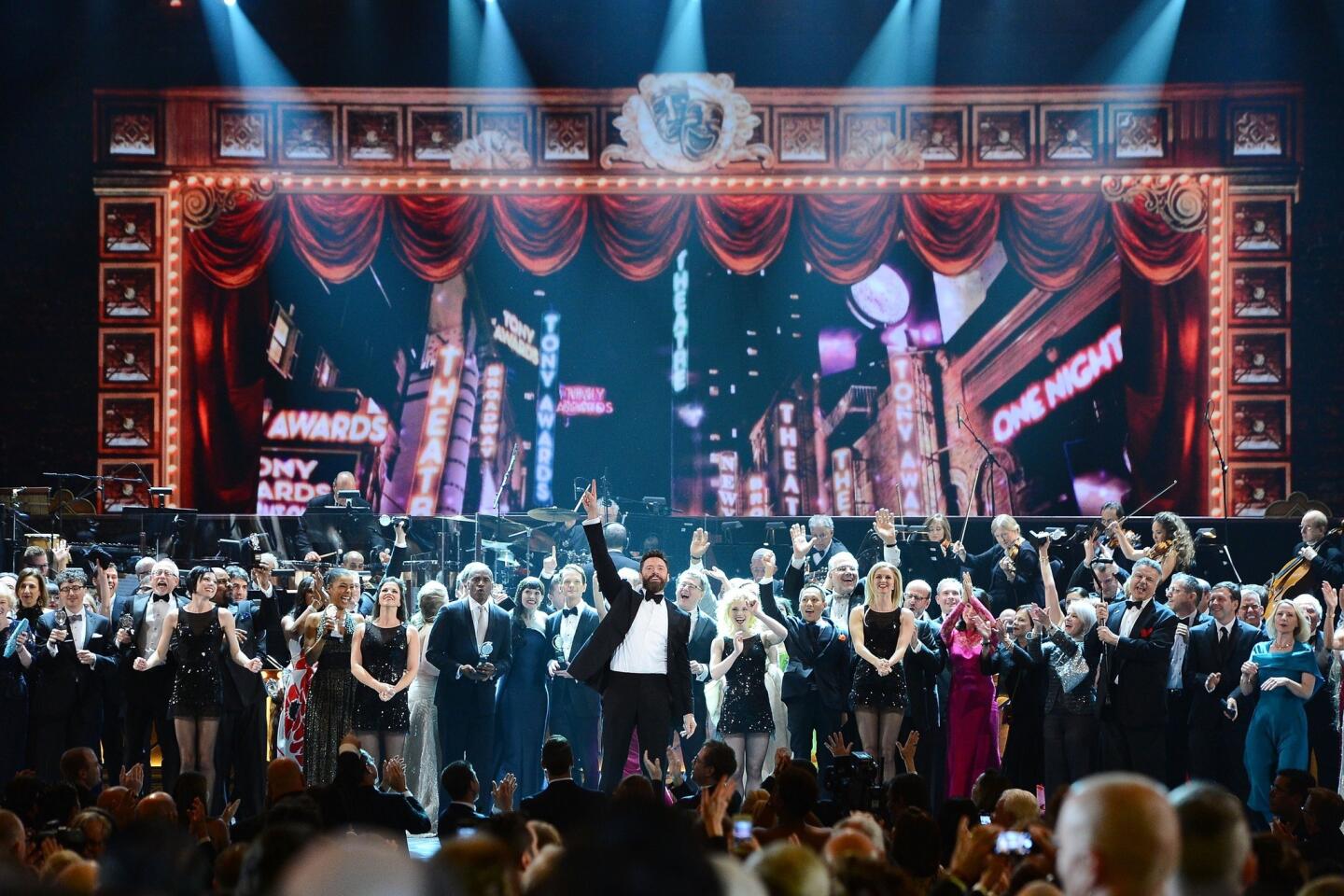Tony Awards 2014: Broadway leans toward pop culture mash-ups
- Share via
Reporting from Los Angeles — From the moment Tony Awards host Hugh Jackman entered hopping … and hopping … and hopping some more, all around Radio City Music Hall, a theme of Sunday night’s show was that Broadway doesn’t want to be seen as standing still, in more ways then one.
Jackman’s entrance — which may have taken an energetic cue from one of Neil Patrick Harris’ recent kinetic opening turns as a Tony host — had multiple resonances, beyond its obvious display of aerobic fitness.
While the CBS telecast was in a commercial break, the Australian star, who has bridged Broadway and popcorn stardom in the “X-Men” film franchise, came on stage and explained to the house, “You don’t grow up in a country of 20 million kangaroos and not know how to hop.”
But the sequence, which Jackman said involved four minutes of boinging on both feet, also could be construed as an emblem for the Tonys’ — and Broadway’s — wish not to be slotted into a narrow musical tradition in an era when entertainment comes all mashed up, on multiple platforms.
At one point, the hopping Jackman zoomed past a screen that showed some traditional apparent source material from 1953 — Bobby Van hopping his way down streets to a town square in a musical number from the film “Small Town Girl.”
But metaphorically, hopping calls to mind hip-hop as much as it does kangaroos. And in rock music circles, the two-legged vertical bounce is punk rock’s signature original dance step, the pogo.
Jackman, for one, made the connection: “How ya doin,’ mosh pit?” he said as he wound up near the stage apron, giving low fives to the tux-clad front row.
The hip-hop connection became straightforward later in the show, when Jackman broke into a rap approximation of Harold Hill’s patter from Meredith Willson’s 1957 Broadway classic, “The Music Man.”
“If you think about it, as I was [while] doing my bad rap, Meredith Willson may have created one of the first rap songs.”
Rather than leave it at that, Jackman called out old school rapper LL Cool J, part of hip-hop’s first big wave in the 1980s, and 21st century arrival T.I. for a more extended riff on the “Music Man” story.
A dance number from “After Midnight,” the musical revue with a score drawn from pre-World War II jazz, had some break dancing tossed in with tap moves — and that blend that helped Warren Carlyle win the Tony for choreography.
The story and music of “Hedwig and the Angry Inch” is based in the early 1970s glam rock that provided a bridge from the ‘60s to the advent of punk, and Harris did it up royally, climbing the onstage rock band’s PA stack before romping in the audience, drawing a scowl from Rock and Roll Hall of Fame member Sting when he plopped his miniskirted derriere into Sting’s lap.
Sting, who began playing reggaefied punk with the Police, is headed to Broadway next season, and after recovering from his encounter with Harris as Hedwig, he gave a preview by playing the somber title song from his show, “The Last Ship.”
The ‘60s in Brill Building pop and the flowering of the early 1970s solo singer-songwriter were seamlessly covered in a two-song sequence from “Beautiful: the Carole King Musical.” Jessie Mueller, one of three performers out of four who won best-actor Tonys for portraying a real person (Harris as Hedwig was the exception), sang “Will You Still Love Me Tomorrow?” as she evoked the moment King and then-husband Gerry Goffin gave birth to the song, then rocked King herself on “I Feel the Earth Move,” from King’s star-making “Tapestry” album.
Does Broadway still have room for traditional Broadway stylings? It would seem so — after all the pogoing and hip-hopping, Jackman introduced one of the final categories, best actress in a musical, by dancing in the aisles with the four nominees — some more willing than others — singing ad-hoc lyrics describing each contender to a “Hit the Road Jack”-type groove that sits in an intersection of blues and pop that has long been a Broadway staple.
And the big, emotional Broadway ballad had not gone AWOL on this evening. Idina Menzel and Sutton Foster delivered numbers from “If/Then” and “Violet,” respectively, that summoned moments of large-scale heartbreak or aspiration, written by contemporary songwriting teams working in the Broadway tradition (Tom Kitt and Bryan Yorkey for “If/Then” and Jeanine Tesori and Brian Crawley for “Violet”).
Jason Robert Brown, another contemporary Broadway traditionalist, was the evening’s only individual double winner, for his score and orchestrations for “The Bridges of Madison County.”
Maybe the message of the evening is that Cole Porter, that cornerstone of the Great American Broadway Song, was being unknowingly prophetic when he wrote that “Anything Goes.”
More to Read
From the Oscars to the Emmys.
Get the Envelope newsletter for exclusive awards season coverage, behind-the-scenes stories from the Envelope podcast and columnist Glenn Whipp’s must-read analysis.
You may occasionally receive promotional content from the Los Angeles Times.
